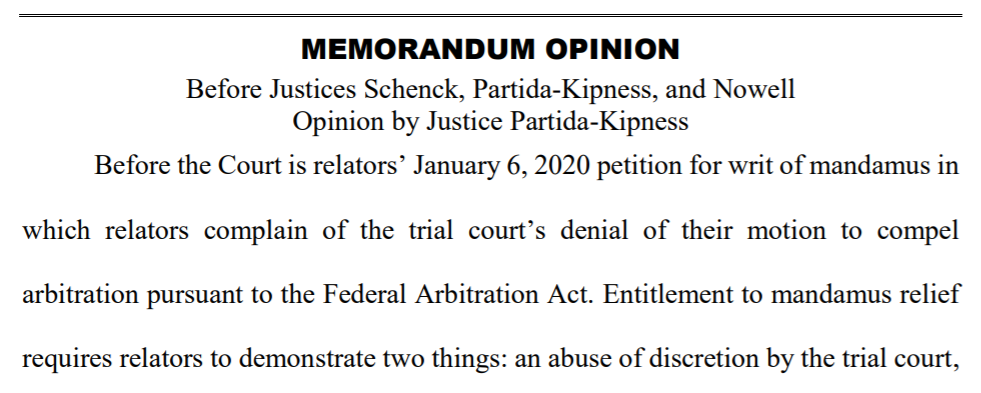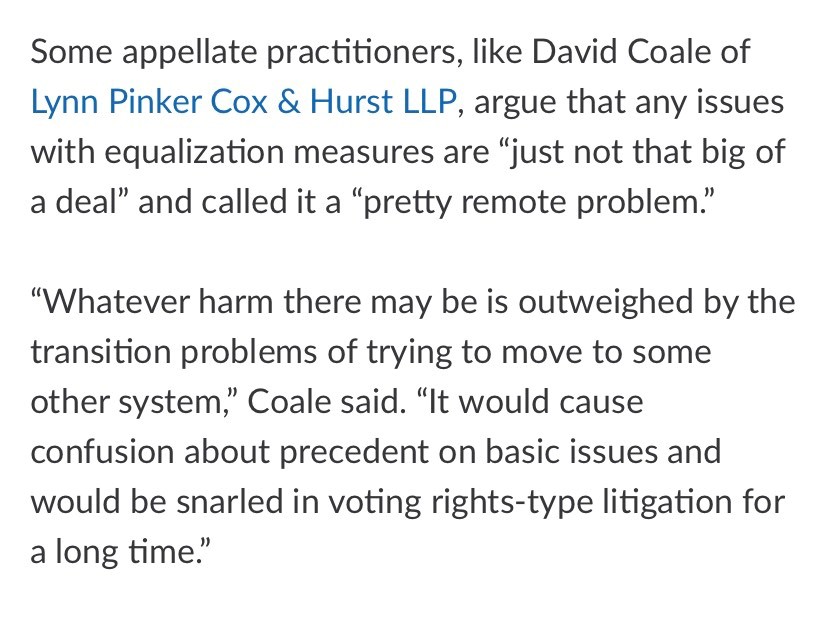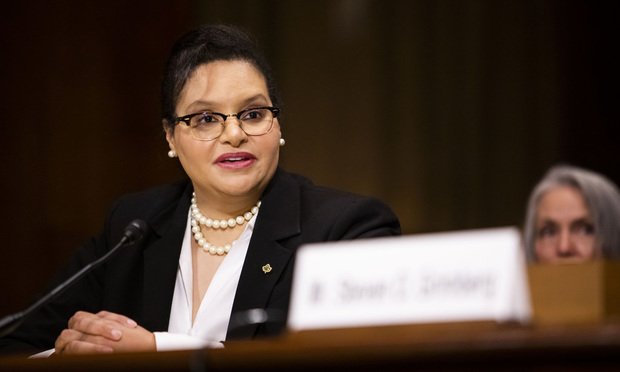“First Ovilla sought to build a house on property that is encumbered by restrictive covenants, and the property owners’ association had previously sought to prevent another builder from constructing a house with a similar building plan. The amended permanent injunction signed in that case (and on which appellees largely relied in their plea to the jurisdiction) has been dissolved by this Court. Therefore, given the record before us, the declarations sought by First Ovilla present a justiciable controversy and are not moot.” First Ovila v. Primm, No. 05-19-00042-CV (April 27, 2020) (mem. op.) (emphasis added).
 The jury charge in an attorney-client fee dispute asked: “Did any of the following persons form an agreement with Glast, Phillips & Murray, PC to pay for fees concerning legal representation?” The question then required the jury to answer “yes” or “no” for both of the defendants on that claim. They lost, and argued on appeal that “question one asked the jury if a contract had been formed between the parties—an issue the [defendants] argue was not in dispute—but neglected to ask whether the agreement was for payment of a flat fee or GPM’s hourly rates” (citing Lone Starr Multi-Theatres v. Max Interests, 365 S.W.3d 688 (Tex. App.–Houston [1st Dist.] 2011, no pet.)
The jury charge in an attorney-client fee dispute asked: “Did any of the following persons form an agreement with Glast, Phillips & Murray, PC to pay for fees concerning legal representation?” The question then required the jury to answer “yes” or “no” for both of the defendants on that claim. They lost, and argued on appeal that “question one asked the jury if a contract had been formed between the parties—an issue the [defendants] argue was not in dispute—but neglected to ask whether the agreement was for payment of a flat fee or GPM’s hourly rates” (citing Lone Starr Multi-Theatres v. Max Interests, 365 S.W.3d 688 (Tex. App.–Houston [1st Dist.] 2011, no pet.)
The Fifth Court found no abuse of discretion in the submission. It distinguished Lone Starr, a landlord-tenant dispute, as involving a disconnect between the jury’s damages finding and the judgment, in that “none of the questions submitted to the jury asked the amount of lost rentals suffered by the landlord, and the [jury’s] ‘fair market value’ determination did not include or even support a lost rentals determination.” Here, in contrast: “. . . in answering question four, the jury calculated GPM’s damages as the amount of GPM’s outstanding invoices, an amount derived from GPM’s hourly rates and billable hours rather than any flat fee. Accordingly, the jury necessarily rejected the Namdars’ capped fee term, and the answer to question four informs us that the jury determined the parties agreed that the Namdars would pay GPM’s hourly rates for the hours billed.” Narmarkhan v. Glast Phillips & Murray, No. 18-0802-CV (April 24, 2020) (mem. op.).
 As reported by The Verge on April 24, Microsoft Word now auto-corrects the use of two spaces after a period at the end of a sentence. The battle, such as it was, should now be considered over. This influential article in Slate explains why the one-spacers – while correct during the era of typewriters, which made every letter and space the same size – have been wrong since the early 1990s and the widespread availability of proportional spacing in modern word processing software.
As reported by The Verge on April 24, Microsoft Word now auto-corrects the use of two spaces after a period at the end of a sentence. The battle, such as it was, should now be considered over. This influential article in Slate explains why the one-spacers – while correct during the era of typewriters, which made every letter and space the same size – have been wrong since the early 1990s and the widespread availability of proportional spacing in modern word processing software.
 Evans v. Martinez arose from a jury trial as to whether reasonable diligence had been used in serving a defendant, against whom suit had been filed on the last day of the limitations period. The jury answered “no” and the Fifth Court affirmed the resulting judgment: “Here, the return of service recites that the process server first came into possession of the citation on October 27, 2015, more than a month after limitations expired. Although Weinkauf offered some evidence regarding the delay, he did not explain why, when he knew he had filed suit on the last day of limitations and that he would shortly leave on vacation, he did not make an alternative arrangement to ensure that the effort to serve Martinez would begin in his absence. On his return, he left the citation sitting at his reception desk and checked on it only once a week even after problems arose with his arrangements for service. There is no evidence to support his testimony of the efforts he made, such as phone records, notes, emails, or testimony from support staff or process servers.” No. 05-18-01241-CV (April 20, 2020) (mem. op.)
Evans v. Martinez arose from a jury trial as to whether reasonable diligence had been used in serving a defendant, against whom suit had been filed on the last day of the limitations period. The jury answered “no” and the Fifth Court affirmed the resulting judgment: “Here, the return of service recites that the process server first came into possession of the citation on October 27, 2015, more than a month after limitations expired. Although Weinkauf offered some evidence regarding the delay, he did not explain why, when he knew he had filed suit on the last day of limitations and that he would shortly leave on vacation, he did not make an alternative arrangement to ensure that the effort to serve Martinez would begin in his absence. On his return, he left the citation sitting at his reception desk and checked on it only once a week even after problems arose with his arrangements for service. There is no evidence to support his testimony of the efforts he made, such as phone records, notes, emails, or testimony from support staff or process servers.” No. 05-18-01241-CV (April 20, 2020) (mem. op.)
Amend v. J.C. Penney Corp. declined to apply the TCPA to a noncompete case. As to the right of association the Court observed: ‘Amend testified he is “responsible for Lowe’s’ website and app sales,” “responsible for online merchandising,” and responsible for “driving sales.” In his position, he works with others on “product management,” “analytics,” “digital technology,” and “strategy and business development,” and he makes recommendations to other Lowe’s employees about these subjects. The evidence does not show that these responsibilities necessarily involve public communications. Instead the responsibilities appear to involve communications between Amend and other Lowe’s employees.’ No. 05-19-00723 (March 31, 2020) (mem. op.) (emphasis added) (LPHS represented the successful appellee in this case.)
 “'[A] plaintiff’s failure to have a valid [assumed name] certificate on file is not a jurisdictional issue but, rather, a capacity issue that is properly raised in a plea in abatement so that the cause may be suspended while the defect is corrected.’ By failing to file a verified plea in abatement prior to trial, appellees waived their complaint.” Pennington v. Cypress Aviation, No. 05-19-00345-CV (April 9, 2020) (mem. op.); cf. Malouf v. Sterquell PSF Settlement LC, No. 05-17-01343-CV (Nov. 7, 2019, pet. filed) (mem. op.) (finding no waiver when the plaintiffs’ “claimed status as a . . . partner was a primary focus of both sides’ arguments at trial”).
“'[A] plaintiff’s failure to have a valid [assumed name] certificate on file is not a jurisdictional issue but, rather, a capacity issue that is properly raised in a plea in abatement so that the cause may be suspended while the defect is corrected.’ By failing to file a verified plea in abatement prior to trial, appellees waived their complaint.” Pennington v. Cypress Aviation, No. 05-19-00345-CV (April 9, 2020) (mem. op.); cf. Malouf v. Sterquell PSF Settlement LC, No. 05-17-01343-CV (Nov. 7, 2019, pet. filed) (mem. op.) (finding no waiver when the plaintiffs’ “claimed status as a . . . partner was a primary focus of both sides’ arguments at trial”).
 Barnes sued Kinser; in response, Kinser moved for sanctions. Barnes then moved to dismiss the sanctions request under the TCPA. The Fifth Court, citing a series of opinions involving analogous filings, held: “The request for sanctions here, like the similar request in Misko, is not a request for legal or equitable relief and not a legal action as defined by the TCPA.” Barnes v. Kinser, No. 05-19-00481-CV (April 7, 2020).
Barnes sued Kinser; in response, Kinser moved for sanctions. Barnes then moved to dismiss the sanctions request under the TCPA. The Fifth Court, citing a series of opinions involving analogous filings, held: “The request for sanctions here, like the similar request in Misko, is not a request for legal or equitable relief and not a legal action as defined by the TCPA.” Barnes v. Kinser, No. 05-19-00481-CV (April 7, 2020).
 Alcala sought to avoid arbitration of a premises-liability claim against her employer, arguing, inter alia, that she did not understand English. Her argument did not prevail because of direct-benefits estoppel:
Alcala sought to avoid arbitration of a premises-liability claim against her employer, arguing, inter alia, that she did not understand English. Her argument did not prevail because of direct-benefits estoppel:
‘The record reflects Alcala received $5,116.46 under the Plan in the form of benefits paid to cover medical expenses related to the subject of her suit against appellants: her February 2016 on-the-job injury. The Plan itself provided, “there is an Arbitration Policy attached to the back of this booklet.” The Agreement provided, “Payments made under [the] Plan . . . constitute consideration for this Agreement.” Having obtained the benefits under the Plan, which incorporates the Agreement by reference, Alcala cannot legally or equitably object to the arbitration provision in the Agreement.’
Multipacking Solutions v. Alcala, No. 05-19-00303-CV (April 14, 2020).
Resolving an unclear area about Sabine Pilot claims for wrongful discharge, the Fifth Court held in “Sandberg did not plead or present evidence that ST[Microelectonics] ever required him to sign false tax statements or other financial documents. Instead, the gist of his claim is that he was terminated for stating he would not execute the documents ‘if there was a breach of the [Advanced Pricing Agreement] agreement and improper adjusting entries were included in the accounting figures’. Sandberg’s pleading does not allege facts showing ST forced Sandberg “to choose between illegal activity and [his] livelihood[].” Sandberg v. STMicroelectronics, Inc., No. 05-18-01360-CV (April 9, 2020).
Sabine Pilot claims for wrongful discharge, the Fifth Court held in “Sandberg did not plead or present evidence that ST[Microelectonics] ever required him to sign false tax statements or other financial documents. Instead, the gist of his claim is that he was terminated for stating he would not execute the documents ‘if there was a breach of the [Advanced Pricing Agreement] agreement and improper adjusting entries were included in the accounting figures’. Sandberg’s pleading does not allege facts showing ST forced Sandberg “to choose between illegal activity and [his] livelihood[].” Sandberg v. STMicroelectronics, Inc., No. 05-18-01360-CV (April 9, 2020).
 Associate judges play a valuable role in helping cases move along. The relevant statute sets limits, however, as illustrated by Kam v. Kam, No. No. 05-19-01293-CV (April 10, 2020) (mem. op.): “The final judgment here was signed by the associate judge but not the judge of the referring court. While the associate judge may have decided all issues and the parties may have agreed to appeal directly to this Court, the judgment is not appealable until the judge of the referring court has signed it. SeeTex. Gov’t Code §§ 54A.214(b), 54A.217(b). . . . Accordingly, we lack jurisdiction and dismiss the appeal and any pending motions.”
Associate judges play a valuable role in helping cases move along. The relevant statute sets limits, however, as illustrated by Kam v. Kam, No. No. 05-19-01293-CV (April 10, 2020) (mem. op.): “The final judgment here was signed by the associate judge but not the judge of the referring court. While the associate judge may have decided all issues and the parties may have agreed to appeal directly to this Court, the judgment is not appealable until the judge of the referring court has signed it. SeeTex. Gov’t Code §§ 54A.214(b), 54A.217(b). . . . Accordingly, we lack jurisdiction and dismiss the appeal and any pending motions.”
 This is a cross-post from 600 Hemphill which follows the Texas Supreme Court.
This is a cross-post from 600 Hemphill which follows the Texas Supreme Court.
B.C. v. Steak & Shake, the supreme court reversed a Dallas case case that declined to consider a late-filed summary judgment submission, holding: “We . . . conclude that the trial court’s recital that it considered the ‘evidence and arguments of counsel,’ without any limitation, is an ‘affirmative indication’ that the trial court considered B.C.’s response and the evidence attached to it. The court of appeals concluded this reference ‘indicates nothing more than the trial court considered [Steak N Shake’s evidence] in conjunction with the traditional motion.’ But a court’s recital that it generally considered ‘evidence’—especially when one party objected to the timeliness of all of the opposing party’s evidence—overcomes the presumption that the court did not consider it.” No. 17-1008 (March 27, 2020) (per curiam)
 After a jury trial, Mumford was declared to be a sexually violent predator and then civilly committed. Dr. Turner, a psychologist, interviewed him and prepared a written report. The trial court struck, for procedural reasons, another expert who the State planned to call at trial, and then allowed the State to offer Dr. Turner’s written report in evidence. The Fifth Court reversed, finding that the report was prepared in anticipation of litigation (the commitment proceedings) and thus was not admissible as a business record. As to harm, it said: “Dr. Turner’s report was the only evidence that appellant ‘suffers from a behavioral abnormality that makes the person likely to engage in a predatory act of sexual violence.’ Without evidence to support that finding, the jury could not have found
After a jury trial, Mumford was declared to be a sexually violent predator and then civilly committed. Dr. Turner, a psychologist, interviewed him and prepared a written report. The trial court struck, for procedural reasons, another expert who the State planned to call at trial, and then allowed the State to offer Dr. Turner’s written report in evidence. The Fifth Court reversed, finding that the report was prepared in anticipation of litigation (the commitment proceedings) and thus was not admissible as a business record. As to harm, it said: “Dr. Turner’s report was the only evidence that appellant ‘suffers from a behavioral abnormality that makes the person likely to engage in a predatory act of sexual violence.’ Without evidence to support that finding, the jury could not have found
appellant was a sexually violent predator.” In re Mumford, No. 05-19-00186-CV (March 31, 2020) (mem. op.)
 The Fifth Court’s website reports: “The Fifth District Court of Appeals at Dallas has set up a YouTube channel for live streaming oral arguments held via Zoom Web Conferencing. The channel is online and open for subscriptions.”
The Fifth Court’s website reports: “The Fifth District Court of Appeals at Dallas has set up a YouTube channel for live streaming oral arguments held via Zoom Web Conferencing. The channel is online and open for subscriptions.”
The channel is available here and is a wonderful addition to public awareness and knowledge about this Court.
 Ali v. DSA Partners provides a useful reminder about a common situation in multi-party litigation: “[A]s a general rule, severance after an interlocutory summary-judgment order to expedite appellate review is proper and not an abuse of discretion.” No. 05-18-01240-CV (March 24, 2020) (mem. op.).
Ali v. DSA Partners provides a useful reminder about a common situation in multi-party litigation: “[A]s a general rule, severance after an interlocutory summary-judgment order to expedite appellate review is proper and not an abuse of discretion.” No. 05-18-01240-CV (March 24, 2020) (mem. op.).
 The appellants in Trubenbach v. Energy Exploration “urge[d] that ‘context matters.’ They argue that as non-signatories, they can compel Energy Exploration to arbitration but Energy Exploration cannot compel them to arbitration. But this is not a case in which non-signatories first moved to compel arbitration, then later changed their minds, withdrew their consent, and proceeded with the litigation in a judicial forum. Here, appellants urged diametrically opposing positions in two different courts at the same time.” (emphasis in original).
The appellants in Trubenbach v. Energy Exploration “urge[d] that ‘context matters.’ They argue that as non-signatories, they can compel Energy Exploration to arbitration but Energy Exploration cannot compel them to arbitration. But this is not a case in which non-signatories first moved to compel arbitration, then later changed their minds, withdrew their consent, and proceeded with the litigation in a judicial forum. Here, appellants urged diametrically opposing positions in two different courts at the same time.” (emphasis in original).
As a result, “[t]heir conduct in claiming rights under the arbitration agreement and their conduct throughout the course of this proceeding clearly reflected their willingness to forego their right to a judicial forum.” No. 05-18-01090-CV (March 27, 2020) (mem. op.). The Court also observed: “Appellants’ actions are akin to behavior prohibited by the invited error doctrine—a party may not complain of an error which the party invited.” (citations omitted).
 The business fallout from the failed bus-camera program at the now-defunct Dallas County Schools (“DCS”) led to litigation about the related intellectual property, which led to a TCPA motion filed by a bidder on the technology during the winding up of DCS. The Fifth Court found that the (pre-September-2019) TCPA did not apply, emphasizing its free-speech prong but also finding no protected right of association or petition:
The business fallout from the failed bus-camera program at the now-defunct Dallas County Schools (“DCS”) led to litigation about the related intellectual property, which led to a TCPA motion filed by a bidder on the technology during the winding up of DCS. The Fifth Court found that the (pre-September-2019) TCPA did not apply, emphasizing its free-speech prong but also finding no protected right of association or petition:
Although the BusStop Technology provides safety measures for children who ride school buses, the benefits of the technology were not the basis of the communications. ATS’s communications with DCS and the Dissolution Committee, including requesting and receiving information about the technology, obtaining prototypes of the technology, and ATS’s actual bid, were private communications about a private, commercial transaction. Similarly, although DCS and the Dissolution Committee are governmental entities, the transactions and associated communications were private financial transactions that did not impact the public; the transactions did not require public approval, and ATS did not argue that the governmental status of DCS and the Dissolution Committee brought the communications into the realm of public concern.
BusPatrol America LLC v. American Traffic Solutions, Inc., No. 05-18-00920-CV (March 24, 2020) (mem. op.) (emphasis added).
The key issue in Hernandez v. Sun Crane & Hoist, Inc. was whether a general contractor exercised “actual control” over a subcontractor’s work. The en banc court reversed a no-evidence summary judgment for the contractor, observing in footnote 9:
“. . . The original panel’s analysis omits any mention of (1) the Subcontract provisions described above regarding schedule control and mandatory safety harness use; (2) Johnston’s testimony that JLB supervisory employees were on-site on the day of the accident and knew the cage could fall over in the event of strong wind or improper bracing; (3) Hernandez’s testimony that he saw JLB supervisors looking at the cage’s bracing prior to the accident; and (4) Molina’s statements that the wind speed was 15–25 miles per hour on the day of the accident and Hernandez was told to jump, but was tethered to the cage by his safety harness.
Those omissions demonstrate that the original panel’s opinion represents a serious departure from precedent in the review of no-evidence summary judgment cases and therefore warrants en banc review under Texas Rule of Appellate Procedure 41.2 to ‘secure or maintain uniformity of the court’s decisions.'”
The court split cleanly along party lines, with all Democratic justices joining the majority opinion, and all Republican justices joining two dissents. Justice Bridges disagreed with the majority’s legal analysis while Justice Whitehill questioned whether the case had warranted en banc consideration. No. 05-17-00719-CV (March 26, 2020).
The estate of Billy Dickson alleged that he died from asbestos exposure at a Bell Helicopter plant. The estate won at trial on a theory of gross negligence. The panel reversed on legal sufficiency grounds, finding no evidence that Bell subjectively knew of a risk to Dickson based on his use of boards containing asbestos as part of the testing of helicopter components. Bell Helicopter Textron v. Dickson, No. 05-17-00979-CV (Aug. 23, 2019) (mem. op.) Justice Bridges wrote the opinion, joined by Justice Whitehill and then-Justice Brown.
 The full court denied en banc review on March 25. Justice Bridges signed the order, apparently joined by Justices Myers, Whitehill, Schenck, Pedersen, and Evans. Justices Molberg and Nowell did not participate.
The full court denied en banc review on March 25. Justice Bridges signed the order, apparently joined by Justices Myers, Whitehill, Schenck, Pedersen, and Evans. Justices Molberg and Nowell did not participate.
A dissent criticized the panel’s application of the City of Keller standard as not properly considering all the evidence heard by the jury, and noted : “This court has misapplied the legal sufficiency standard of review to second-guess jury verdicts before and here, it does so again.” Justice Carlyle wrote the opinion, joined by Chief Justice Burns and Justices Osborne, Partida-Kipness, and Reichek.
 A concurrence, written by Justice Whitehill and joined by all other Republican Justices on the Court (Justices Bridges, Myers, Schenck, and Evans), responded to the dissent, noting inter alia: “With no apparent bearing on the correct legal analysis of the issues in this case, the dissenting opinion (i) criticizes four prior opinions from this Court that are not asbestos cases and have no apparent logical relationship to this case . . . ”
A concurrence, written by Justice Whitehill and joined by all other Republican Justices on the Court (Justices Bridges, Myers, Schenck, and Evans), responded to the dissent, noting inter alia: “With no apparent bearing on the correct legal analysis of the issues in this case, the dissenting opinion (i) criticizes four prior opinions from this Court that are not asbestos cases and have no apparent logical relationship to this case . . . ”
To summarize, the vote was 6-5 against en banc review, largely on party lines, and would have come out differently had the two nonparticipating Justices joined their Democratic colleagues.
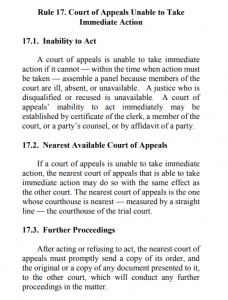 The coronavirus situation has prompted review of once-obscure statutes and rules; among them, Tex. R. App. 17, which addresses where to go if the ordinarily-assigned court of appeals is unavailable. Surprisingly, Rule 17.2 sends the relevant party to the nearest alternative court of appeals, measured by distance from the trial court. For courts in the Dallas district, then, that could be Fort Worth, Waco, Tyler, or Texarkana. (To be clear, THE DALLAS COURT IS AVAILABLE, this post is just a note on a TRAP that has become less obscure in light of current events.)
The coronavirus situation has prompted review of once-obscure statutes and rules; among them, Tex. R. App. 17, which addresses where to go if the ordinarily-assigned court of appeals is unavailable. Surprisingly, Rule 17.2 sends the relevant party to the nearest alternative court of appeals, measured by distance from the trial court. For courts in the Dallas district, then, that could be Fort Worth, Waco, Tyler, or Texarkana. (To be clear, THE DALLAS COURT IS AVAILABLE, this post is just a note on a TRAP that has become less obscure in light of current events.)
 While mandamus litigation often focuses on whether a clear abuse of discretion occurred, the other relevant factors can also be dispositive. Consider the panel majority in In re Alpha-Barnes Real Estate Services LLC, which observed: “While the trial court’s order presents an error potentially justifying reversal on a direct appeal, has failed to demonstrate the inadequacy of an appeal, particularly given the limited scope of the order and alternative mechanisms by which relator may introduce the same evidence excluded by the order.” It also relied upon laches, noting a lengthy and unexplained delay in seeking mandamus relief. A dissent would have granted the petition, noting the likely effect on the trial, and that the parties had entered a stipulation about the otherwise-unexplained delay. No. 05-20-00073-CV (March 17, 2020) (mem. op.).
While mandamus litigation often focuses on whether a clear abuse of discretion occurred, the other relevant factors can also be dispositive. Consider the panel majority in In re Alpha-Barnes Real Estate Services LLC, which observed: “While the trial court’s order presents an error potentially justifying reversal on a direct appeal, has failed to demonstrate the inadequacy of an appeal, particularly given the limited scope of the order and alternative mechanisms by which relator may introduce the same evidence excluded by the order.” It also relied upon laches, noting a lengthy and unexplained delay in seeking mandamus relief. A dissent would have granted the petition, noting the likely effect on the trial, and that the parties had entered a stipulation about the otherwise-unexplained delay. No. 05-20-00073-CV (March 17, 2020) (mem. op.).
 One Dallas Court of Appeals case addresses the breach-of-contract defense of impracticability, Hewitt v Biscaro, 353 S.W.3d 304 (Tex. App.—Dallas 2011, no pet.). Relevant to the current crisis, it involves a government order that allegedly made performance more difficult. The Court examined whether:
One Dallas Court of Appeals case addresses the breach-of-contract defense of impracticability, Hewitt v Biscaro, 353 S.W.3d 304 (Tex. App.—Dallas 2011, no pet.). Relevant to the current crisis, it involves a government order that allegedly made performance more difficult. The Court examined whether:
- the performance issue was a basic assumption of the contract;
- the government’s action was an official order or regulation (in that case, the SEC’s contact with the defendant was not); and
- the defendant was acting in good faith.
The Court relied on an earlier Texas Supreme Court case and the relevant Restatement (Second) of Contracts provision. Application of this opinion will be important in upcoming commercial disputes created by the novel coronavirus.
 This is a cross-post from 600Hemphill, which follows the Texas Supreme Court:
This is a cross-post from 600Hemphill, which follows the Texas Supreme Court:
Henry McCall lived in a cabin on Homer Hillis’s property, occasionally helping Hillis with maintenance at the McCall’s bed-and-breakfast. While working on Hillis’s sink, a brown recluse spider bit McCall. The Texas Supreme Court found that the ferae naturae doctrine barred McCall’s lawsuit against  Hillis: “[H]e owed no duty to the invitee because he was unaware of the presence of brown recluse spiders on his property and he neither attracted the offending spider to his property nor reduced it to his possession. Further, [McCall] had actual knowledge of the presence of spiders on the property.” Hillis v. McCall, No. 18-1065 (Tex. March 13, 2020). In addition to its impact on brown-recluse litigation, the reasoning of this opinion about liability for small, dangerous creatures well be relevant in any future litigation about coronavirus exposure.
Hillis: “[H]e owed no duty to the invitee because he was unaware of the presence of brown recluse spiders on his property and he neither attracted the offending spider to his property nor reduced it to his possession. Further, [McCall] had actual knowledge of the presence of spiders on the property.” Hillis v. McCall, No. 18-1065 (Tex. March 13, 2020). In addition to its impact on brown-recluse litigation, the reasoning of this opinion about liability for small, dangerous creatures well be relevant in any future litigation about coronavirus exposure.
 In re Johnson catches the eye as an atypical non-memorandum opinion in a pro se mandamus proceeding arising from a criminal case. The novel feature of the opinion is its footnote (longer than the actual opinion), using the Court’s “discretion to take judicial notice of adjudicative facts that are matters of public record” to review the relevant online docket sheet to establish mootness. No. 05-20-00068-CV (March 11, 2020)
In re Johnson catches the eye as an atypical non-memorandum opinion in a pro se mandamus proceeding arising from a criminal case. The novel feature of the opinion is its footnote (longer than the actual opinion), using the Court’s “discretion to take judicial notice of adjudicative facts that are matters of public record” to review the relevant online docket sheet to establish mootness. No. 05-20-00068-CV (March 11, 2020)
 The trial court dismissed Heri Automotive’s counterclaims for forum non conveniens. Heri appealed. The Fifth Court dismissed because “no authority exists authorizing the appeal of the challenged interlocutory order,” and also noted that “appellant cites no authpority, and we have found none, that authorizes mandamus review of an interlocutory order granting a motion to dismiss for forum non conveniens.” Heri Automotive v. Adams, No. 05-19-01215-CV (Feb. 21, 2020) (mem. op.).
The trial court dismissed Heri Automotive’s counterclaims for forum non conveniens. Heri appealed. The Fifth Court dismissed because “no authority exists authorizing the appeal of the challenged interlocutory order,” and also noted that “appellant cites no authpority, and we have found none, that authorizes mandamus review of an interlocutory order granting a motion to dismiss for forum non conveniens.” Heri Automotive v. Adams, No. 05-19-01215-CV (Feb. 21, 2020) (mem. op.).
A 2018 article with an LPCH colleague considered when it is wise for an intermediate appellate court, subject to further review by the Texas Supreme Court, to take issues en banc. That article has been updated on this page on this website to reflect the supreme court’s recent Flakes opinion; only time will tell whether the recent rulings and dissents by the en banc Dallas court will draw supreme court interest.
 After the 2018 election, an LPCH colleague and I wrote about the potential for renewed interest in “factual sufficiency” review–closely related to “legal sufficiency” review, but placed in the exclusive jurisdiction of the intermediate courts of appeal under the state constitution.
After the 2018 election, an LPCH colleague and I wrote about the potential for renewed interest in “factual sufficiency” review–closely related to “legal sufficiency” review, but placed in the exclusive jurisdiction of the intermediate courts of appeal under the state constitution.
An example appeared in In re C.V.L., where a panel majority reversed the termination of a parent-child relationship in a factual sufficiency review: “[E]vidence that Father used m ethamphetamines twice during the underlying proceedings and Bonds’ unsubstantiated belief that Father will use drugs again in the future because he used drugs twice in the past is not enough under a factual sufficiency review to permanently deprive Father and child of a relationship when weighed against all of the contrary, uncontroverted evidence presented at trial and the strong presumption that a child’s best interests are served by maintaining the parent–child relationship.”
ethamphetamines twice during the underlying proceedings and Bonds’ unsubstantiated belief that Father will use drugs again in the future because he used drugs twice in the past is not enough under a factual sufficiency review to permanently deprive Father and child of a relationship when weighed against all of the contrary, uncontroverted evidence presented at trial and the strong presumption that a child’s best interests are served by maintaining the parent–child relationship.”
A dissent saw the court of appeals’ role differently: “This case presents important questions regarding an appellate court’s ability to second guess a factfinder’s pivotal credibility determinations in a termination case given the supreme court’s admonition that despite the heightened standard of review in termination cases, courts of appeals must nevertheless still provide due deference to the factfinder’s credibility determinations.” No. 05-19-00506-CV (Dec. 13, 2019, pet. filed) (mem. op.)
Factual sufficiency review in this type of family-law case involves unique issues that may not arise in commercial disputes, but the case is still an important example of how this standard works in practice.
 In a dispute about arbitrability, the plaintiff claimed never to have seen the arbitration agreement, and after receiving evidence about the defendant’s computer system, the trial judge agreed.
In a dispute about arbitrability, the plaintiff claimed never to have seen the arbitration agreement, and after receiving evidence about the defendant’s computer system, the trial judge agreed.
A panel majority affirmed the denial of the motion to compel arbitration: “Aerotek made the choice to forego in-person wet-ink signatures on paper contracts. This may be a good business decision that allows it to more efficiently process more business than otherwise possible. And in this case, Aerotek made the choice to bring only one person, an employee without apparent IT experience specific to the type of computer system whose technical reliability and security she sought to vouch for. Aerotek did this in the face of admitting it had contracted out creation and implementation of this system to another entity altogether and brought no witness from that entity. We conclude Aerotek did not present evidence establishing the opposite of a vital fact, here that appellees’ denials of ever seeing the a rbitration contracts were physically impossible given Aerotek’s computer system.”
rbitration contracts were physically impossible given Aerotek’s computer system.”
A dissent had a different view of the evidence and warned that as a policy matter: “This would allow any party to a contract signed electronically to deny the existence of the contract even in the face of overwhelming evidence that the contract was signed. Further, this holding amounts to a state rule discriminating on its face against arbitration, which is expressly prohibited.”
The en banc court denied review in a brief order (Justices Molberg (the trial judge) and Whitehill did not participate); a dissent by Justice Schenck reiterated the dissent’s warnings and “urge[d] prompt review by the Texas Supreme Court.” (joined by Justices Bridges (the panel dissenter), Evans, and Myers).
In the 2018 election for a Dallas County Justice of the Peace position, Democratic candidate Margaret O’Brien obtained a default judgment that her Republican opponent, Ashley Hutcheson, was ineligible for the position because of her residence. IAfter the  election, in December 2018, a Fifth Court panel reversed, finding that the order was void because an Election Code provision bars default judgments in election cases, and further finding that the matter was not moot and required a further trial-court order because the judgment included an award of attorneys’ fees.
election, in December 2018, a Fifth Court panel reversed, finding that the order was void because an Election Code provision bars default judgments in election cases, and further finding that the matter was not moot and required a further trial-court order because the judgment included an award of attorneys’ fees.
Litigation continued before the en banc court (the makeup of which significantly changed in the same 2018 election), which ultimately settled. In a short opinion by Chief Justice Burns on March 6, 2020, a majority of the Court dismissed the case as moot and withdrew the panel opinion.
 Controversy ensued, as reflected by the four other opinions issued that day:
Controversy ensued, as reflected by the four other opinions issued that day:
- A dissent by Justice Schenck found that the matter was not moot (as it was capable
of repetition, etc.), agreed with the reasoning of the panel, and criticized the decision to withdraw the panel’s opinion (joined by Justices Bridges and Evans); - Another dissent, by Justice Whitehill, criticized the decision to withdraw the panel’s opinon for other reasons (also joined by Justice Bridges);
- A concurrence and dissent by Justice Bridges (the author of the panel opinion) agreed with the conclusion that the case is moot, disagreed with the withdrawal of the panel opinion, and reiterated the reasoning of that opinion (joined by Justices Myers, Whitehill, Schenck, and Evans — the full complement of Republican Justices on the present court);
- A concurrence by Justice Molberg clashed with the substantive reasoning of the dissents, but concluded that the order was void for another reason – ripeness – as the election had not yet occurred at the time of judgment. This opinion was joined by all other Democratic Justices on the court except Justice Pedersen, who did not participate in the case.
 Liederman, a New York lawyer, sent seventy-seven emails to Texas, made five phone calls there, and signed and delivered three tolling agreements to Davis, a Texas-based attorney, “over a span of three years in working towards settling appellees’ claims.” The Fifth Court found no specific personal jurisdiction, observing: “Liederman could have ‘quite literally’ interacted with Davis, who could have been anywhere in the world, in the same manner. . . . It is apparent that Invasix’s contacts with Davis were based on her representation of the nonresident plaintiffs in the personal injury lawsuit and had nothing to do with the State of Texas.” Invasix, Inc. v. James, No. 05-19-00494-CV (Feb. 25, 2020) (mem. op.) (emphasis added). The Court also found no general personal jurisdiction, applying recent Texas and United States Supreme Court opinions that have limited the scope of that doctrine.
Liederman, a New York lawyer, sent seventy-seven emails to Texas, made five phone calls there, and signed and delivered three tolling agreements to Davis, a Texas-based attorney, “over a span of three years in working towards settling appellees’ claims.” The Fifth Court found no specific personal jurisdiction, observing: “Liederman could have ‘quite literally’ interacted with Davis, who could have been anywhere in the world, in the same manner. . . . It is apparent that Invasix’s contacts with Davis were based on her representation of the nonresident plaintiffs in the personal injury lawsuit and had nothing to do with the State of Texas.” Invasix, Inc. v. James, No. 05-19-00494-CV (Feb. 25, 2020) (mem. op.) (emphasis added). The Court also found no general personal jurisdiction, applying recent Texas and United States Supreme Court opinions that have limited the scope of that doctrine.
 In Grisaffi v. Rocky Mountain High Brands, the Fifth Court reversed and remanded a default judgment after identifying an impermissible double recovery on the key issue: “Although Grisaffi committed numerous wrongful acts against Rocky Mountain, the default judgment awards Rocky Mountain $3.5 million as compensation for ‘funds obtained through fraud, breach of fiduciary duty and conversion with respect to Series A Preferred Stock . . . .’ The default judgment further awards Rocky Mountain declaratory relief to void the issuance of that Series A Preferred Stock. Thus, both the monetary and declaratory relief awarded to Rocky Mountain compensate it for the single injury of the wrongful issuance of Series A Preferred Stock caused by Grisaffi.” No. 05-18-01020-CV (Feb. 27, 2020) (mem. op.)
In Grisaffi v. Rocky Mountain High Brands, the Fifth Court reversed and remanded a default judgment after identifying an impermissible double recovery on the key issue: “Although Grisaffi committed numerous wrongful acts against Rocky Mountain, the default judgment awards Rocky Mountain $3.5 million as compensation for ‘funds obtained through fraud, breach of fiduciary duty and conversion with respect to Series A Preferred Stock . . . .’ The default judgment further awards Rocky Mountain declaratory relief to void the issuance of that Series A Preferred Stock. Thus, both the monetary and declaratory relief awarded to Rocky Mountain compensate it for the single injury of the wrongful issuance of Series A Preferred Stock caused by Grisaffi.” No. 05-18-01020-CV (Feb. 27, 2020) (mem. op.)
 Section 171.025 of the Civil Practice & Remedies Code says: “The court shall stay a proceeding that involves an issue subject to arbitration if an order for arbitration or an application for that order is made under this subchapter.” The dispute in In re: Baby Dolls Topless Saloon involved a mandamus petition from a defendant’s perceived inability to obtain an order implementing this stay, during its interlocutory appeal from denial of its motion to compel arbitration.
Section 171.025 of the Civil Practice & Remedies Code says: “The court shall stay a proceeding that involves an issue subject to arbitration if an order for arbitration or an application for that order is made under this subchapter.” The dispute in In re: Baby Dolls Topless Saloon involved a mandamus petition from a defendant’s perceived inability to obtain an order implementing this stay, during its interlocutory appeal from denial of its motion to compel arbitration.
The panel majority denied the petition, finding that the issue of arbitrability “has been briefed in the interlocutory appeal and will be decided by the panel of justices assigned to decide that appeal, which is just as the legislature intended when it enacted section 51.016 and provided for an interlocutory appeal of an order denying a motion to compel arbitration. Because we follow the rule of law, we, as one panel of this Court, will not depart from this Court’s prior holding that mandamus will not issue when the legislature has expressly provided an adequate remedy by appeal.”
A dissent would have granted a stay as part of resolution of the mandamus petition, noting: “While our own statute and rules appear to compel the same result by dictating a stay of the overlapping proceedings of whatever court is first asked, we have not done so here. Accordingly, relator has properly brought the issue before us for mandamus relief that should be available under long recognized mandamus standards and without the need of further machination or a fifth request for stay.” No. 05-20-00015-CV (Feb. 24, 2020) (mem. op.)
 In re Catapult Realty arose from a foreclosure that wound a complex path through the Dallas courthouse, and offers two practice reminders about such situations:
In re Catapult Realty arose from a foreclosure that wound a complex path through the Dallas courthouse, and offers two practice reminders about such situations:
- The judge of one district court signed a TRO on behalf of another district judge. The resulting order was void because “[t]he record does not reflect that another temporary injunction or other evidentiary hearing was held before the 298th district judge prior to her signing the 2nd TRO.”;
- A county court granted a plea in abatement based on her perceived inability to decide subject-matter jurisdiction. Mandamus relief was proper when this decision was incorrect legally, and where the resulting order “does not specify the circumstances that will allow for the case to be reinstated,” thus denying the plaintiff “the right to proceed to a resolution of the forcible-detainer action within a reasonable time.”
Nos. 05-19-01056-CV & -00109-CV (Feb. 20, 2020) (mem. op.)
 “Birds of a feather flock together,” says the old proverb. But on the Fifth Court, justices of the same political party do not always rule together, as shown by two recent opinions.
“Birds of a feather flock together,” says the old proverb. But on the Fifth Court, justices of the same political party do not always rule together, as shown by two recent opinions.
The first, Inland Western v. Nguyen, No. 05-17-00151-CV (Feb. 10, 2020) began when the owners of a nail salon, the Nguyens, sued their landlord for alleged misrepresentations about lease renewal. They won a judgment in their favor after a jury trial, after which a Fifth Court panel reversed and rendered judgment for the landlord.
The Nguyens petitioned for rehearing en banc. The court granted their petition, held oral argument and then reversed course Feb. 10 in a 10-4 decision. It issued a short, form order denying en banc reconsideration without discussing the merits.
The order was supported by all five of the current Republican justices (David Bridges, Lana Myers, Bill Whitehill, David Schenck and David Evans), joined by retired Justice Robert Fillmore from the original panel. Four of the Democratic justices (Leslie Osborne, Bill Pedersen, Amanda Reichek and Cory Carlyle) also joined the order.
Three of those Republican justices joined Inland Western v. Nguyen inland concurrence that emphasized the judicial oversight of jury trials: “[Our system, like the federal, recognizes … that there is no right to a judgment on a jury verdict if the legal theory is invalid or the objective quality of the evidence does not support the jury’s finding.” Justice Schenck wrote the concurring opinion, joined by justices Bridges and Evans.
A four-justice dissent was joined by four other Democratic justices. Chief Justice Robert Burns wrote that he would remand for a new trial, noting, “Appellate courts are duty bound to indulge every reasonable inference to sustain a jury verdict when the evidence supports the verdict.” He was joined by justices Ken Molberg, Robbie Partida-Kipness and Erin Nowell.
The Nguyen opinions show the importance of party affiliation, in that all Republicans on the court joined the decision to deny review, while all the dissenting justices were Democrats. But at the same time, Nguyen reminds that the new Democratic majority on the Dallas court is not a monolithic block, as four of those justices joined the majority while four dissented.
 The second case, In re: Parks, No. 05-19-00375-CV (Feb. 18, 2020) (mem. op.), denied a mandamus petition about a trial court order striking counteraffidavits related to the reasonableness and necessity of certain medical expenses filed under Chapter 18 of the Civil Practice and Remedies Code.
The second case, In re: Parks, No. 05-19-00375-CV (Feb. 18, 2020) (mem. op.), denied a mandamus petition about a trial court order striking counteraffidavits related to the reasonableness and necessity of certain medical expenses filed under Chapter 18 of the Civil Practice and Remedies Code.
Republican Justice Bridges, joined by Democratic Justice Carlyle, drew an analogy between the trial court’s ruling and an order striking expert-witness designations, which is not ordinarily a basis for mandamus relief.
Republican Justice Schenck—who wrote the Nguyen concurrence—dissented, arguing that the present state of Dallas law “raises serious constitutional concerns related to the parties’ rights to a trial by jury, as well as their due process rights….” While from the same party as Justice Bridges, the two differed on an important procedural point about the balance of power between trial and appellate judges.
Going forward, these two cases are a good reminder that party affiliation, while important, is far from dispositive as to how a particular justice may approach a case.
(A similar article appeared this week in the Texas Lawbook. My LPCH partner Jason Dennis represents the Nguyens.)
 By early 2019, the attorney-client relationship between Klein and McCray was disintegrating. With a summary judgment hearing looming, Klein moved for continuance and asked for latitude at the hearing “because my client has not provided me with key materials” and discussing the topic of his withdrawal. The trial court then granted summary judgment against McCray (in an order that Klein agreed to “as to form”), after which Klein moved for withdrawal and was allowed to do so.
By early 2019, the attorney-client relationship between Klein and McCray was disintegrating. With a summary judgment hearing looming, Klein moved for continuance and asked for latitude at the hearing “because my client has not provided me with key materials” and discussing the topic of his withdrawal. The trial court then granted summary judgment against McCray (in an order that Klein agreed to “as to form”), after which Klein moved for withdrawal and was allowed to do so.
McCray sought relief from the judgment, “denying he received notice of the summary judgment motion from Klein.” This request led to a difficult, but outcome-determinative question, as to whether Klein’s knowledge should be imputed to McCray, despite their deteriorated relationship:
If [McCray] is correct in his position on the law and facts, then Craddock applies to his claim because it means he would have had no notice of the motion, the failure to respond, or the summary judgment hearing, and a motion for new trial is the proper method to challenge the summary judgment. If he is incorrect on his no-imputation argument, then Carpenter applies and he is required to challenge the trial court’s denial of his motion for continuance for an abuse of discretion, which he has not done.
The Fifth Court held that “[b]ecause Klein was still actively (if not sufficiently) representing [McCray] prior to and at the summary judgment hearing, Klein’s knowledge is imputed to [McCray].” McCray v. McCray, No. 05-19-00556-CV (Feb. 20, 2020).
The Committee for a Qualified Judiciary has published its list of local judicial candidates found qualified.
Bad service was found, and a restricted appeal succeeded, in Plummer v. Enterra Capital when the citation described the documents served (without attachments) as:

 and otherwise: “The E&P citation was to be served on Plummer as E&P’s registered agent on Ridgeview Drive in Richardson, but handwriting next to the printed address showed an address on Arapaho Road in Richardson for a different entity, Richmond Engineering, Inc. Both of the returns show service at the Arapaho Road address. The Officer’s Return on each citation showed service on November 16, 2018, but the blank following ‘by delivering to the within named’ was not filled in on either return.” No. 05-19-00255-CV (Feb. 20, 2020) (mem. op.)
and otherwise: “The E&P citation was to be served on Plummer as E&P’s registered agent on Ridgeview Drive in Richardson, but handwriting next to the printed address showed an address on Arapaho Road in Richardson for a different entity, Richmond Engineering, Inc. Both of the returns show service at the Arapaho Road address. The Officer’s Return on each citation showed service on November 16, 2018, but the blank following ‘by delivering to the within named’ was not filled in on either return.” No. 05-19-00255-CV (Feb. 20, 2020) (mem. op.)
 In re Parks denied a mandamus petition arising from the striking of counteraffidavits, related to the reasonableness and necessity of certain medical expenses, filed pursuant to Chapter 18 of the Civil Practice and Remedies Code. Applying Fifth Court precedent, the Court drew an analogy to the striking
In re Parks denied a mandamus petition arising from the striking of counteraffidavits, related to the reasonableness and necessity of certain medical expenses, filed pursuant to Chapter 18 of the Civil Practice and Remedies Code. Applying Fifth Court precedent, the Court drew an analogy to the striking  of expert designations, which is not ordinarily addressed by mandamus review. A dissenting opinion argued that “our existing construction raises serious constitutional concerns related to the parties’ rights to a trial by jury, as well as their due process rights to a decision on the merits and to appellate review,” and would have considered the merits of the petition. No. 05-19-00375-CV (Feb. 18, 2020) (mem. op.)
of expert designations, which is not ordinarily addressed by mandamus review. A dissenting opinion argued that “our existing construction raises serious constitutional concerns related to the parties’ rights to a trial by jury, as well as their due process rights to a decision on the merits and to appellate review,” and would have considered the merits of the petition. No. 05-19-00375-CV (Feb. 18, 2020) (mem. op.)
 Morales v. Barnes reminds how an appellate mandate should guide further trial-court proceedings: “Our December 29, 2017 judgment and related mandate, however, rendered a partial judgment dismissing only Barnes’ claims based on the second letter. We affirmed the trial court’s denial of the motion to dismiss Barnes’ claims based on the first letter and we remanded those claims to the trial court for further proceedings. We conclude that by dismissing any claims based on the first letter, the trial court’s order was inconsistent with and failed to give full effect to our December 29, 2017 judgment and related mandate.” No. 05-18-00767-CV (Feb. 7, 2020) (mem. op.)
Morales v. Barnes reminds how an appellate mandate should guide further trial-court proceedings: “Our December 29, 2017 judgment and related mandate, however, rendered a partial judgment dismissing only Barnes’ claims based on the second letter. We affirmed the trial court’s denial of the motion to dismiss Barnes’ claims based on the first letter and we remanded those claims to the trial court for further proceedings. We conclude that by dismissing any claims based on the first letter, the trial court’s order was inconsistent with and failed to give full effect to our December 29, 2017 judgment and related mandate.” No. 05-18-00767-CV (Feb. 7, 2020) (mem. op.)
 Jones v. Schachar succinctly summarizes compliance with Malooly: “The appellant can do this by either asserting a separate issue challenging each possible ground, or asserting a general issue that the trial court erred in granting summary judgment and within that issue providing argument negating all possible grounds upon which summary judgment could have been granted.” No. 05-19-00188-CV (Feb. 11, 2020) (mem. op.)
Jones v. Schachar succinctly summarizes compliance with Malooly: “The appellant can do this by either asserting a separate issue challenging each possible ground, or asserting a general issue that the trial court erred in granting summary judgment and within that issue providing argument negating all possible grounds upon which summary judgment could have been granted.” No. 05-19-00188-CV (Feb. 11, 2020) (mem. op.)
 The Nguyens, owners of a nail salon, sued their landlord for alleged misrepresentations related to lease renewal. They won a judgment in their favor after a jury trial; a Fifth Court panel reversed and rendered judgment for the landlord. The Court granted the Nguyens’ motion for en banc rehearing, which produced these three points of view after oral argument:
The Nguyens, owners of a nail salon, sued their landlord for alleged misrepresentations related to lease renewal. They won a judgment in their favor after a jury trial; a Fifth Court panel reversed and rendered judgment for the landlord. The Court granted the Nguyens’ motion for en banc rehearing, which produced these three points of view after oral argument:
- A majority of justices denied the request for en banc review in a short, one-line order (Justices Bridges, Myers, Whitehill, Schenck, Osborne, Pedersen, Reichek, Carlyle, Evans, and from the original panel, Justice Fillmore).
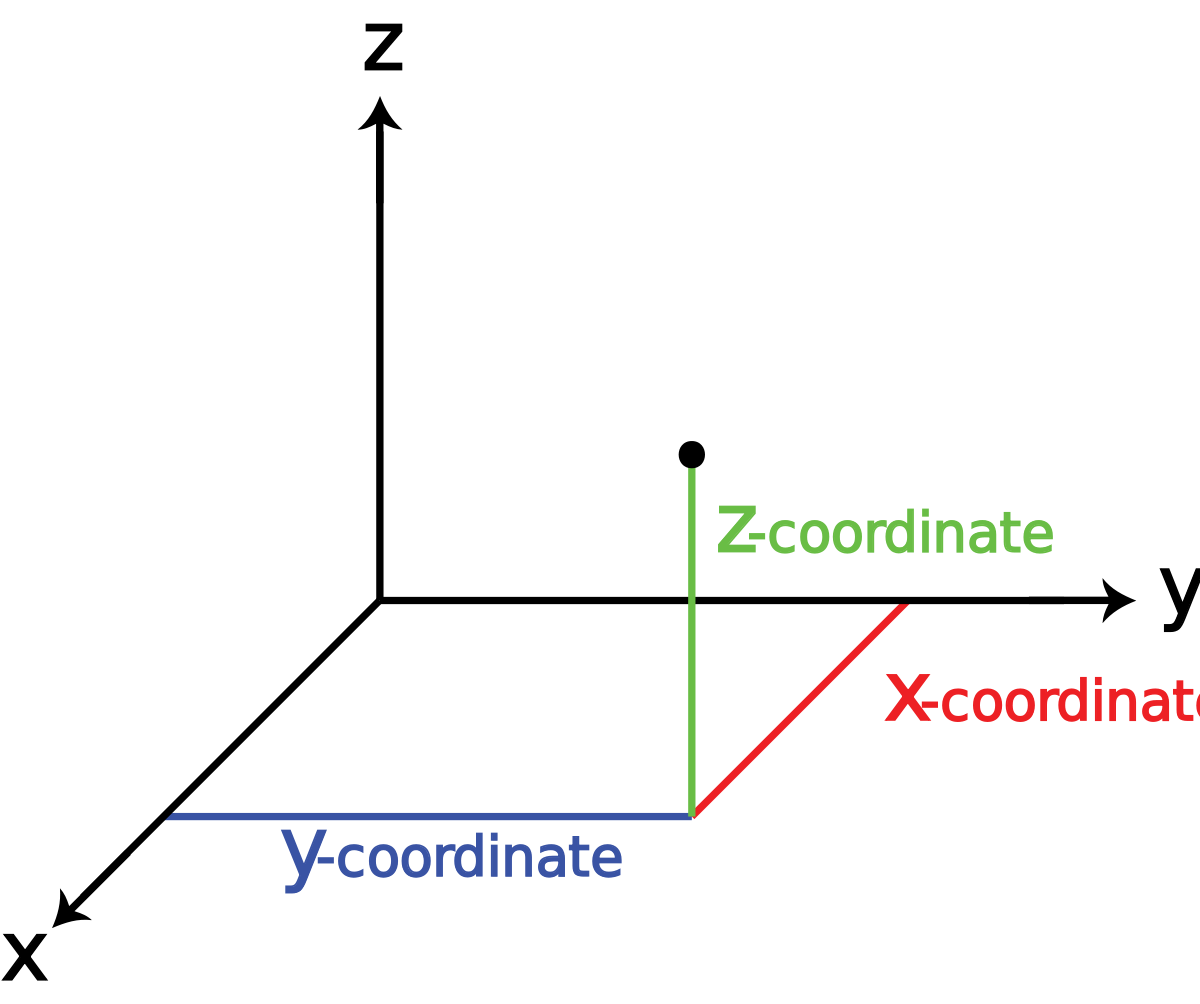 A short concurrence underscored the importance of a judge’s power to set aside a jury verdict when required by law (Justice Schenck, joined by Justices Bridges and Evans) (as all three concurring Justices are named “David,” one
A short concurrence underscored the importance of a judge’s power to set aside a jury verdict when required by law (Justice Schenck, joined by Justices Bridges and Evans) (as all three concurring Justices are named “David,” one  could say they viewed the case in “3-D”)
could say they viewed the case in “3-D”)- Four justices dissented, emphasizing the importance of jury deliberations to the civil justice system (Chief Justice Burns, joined by Justices Molberg, Partida-Kipness, and Nowell).
No. 05-17-00151-CV (Feb. 10, 2020) (My LPCH partner Jason Dennis represented the Nguyens.)
 An in-house lawyer for Ruhrpumpen, Inc., a company involved in substantial patent litigation, claimed an interest in the contingent fee agreement of the company’s outside counsel. The Fifth Court rejected the claim, holding: “[W]e conclude that a company’s general counsel owes the company a fiduciary duty not to accept compensation from anyone other than the company for working on a case for the company or for referring the case to a law firm without disclosing that compensation to the company and getting the company’s consent. In this case, Moore did not have authority to consent on Ruhrpumpen’s behalf to the fee-sharing agreement unless he had disclosed the agreement to the management of Ruhrpumpen other than himself.The record establishes that Moore did not disclose the fee-sharing agreement to Ruhrpumpen’s managers. Therefore, Moore did not have authority to consent to the fee-sharing agreement on Ruhrpumpen’s behalf.” Cokinos, Bosien & Young v. Moore, No. 05-18-01340-CV (Feb. 4, 2020) (mem op.)
An in-house lawyer for Ruhrpumpen, Inc., a company involved in substantial patent litigation, claimed an interest in the contingent fee agreement of the company’s outside counsel. The Fifth Court rejected the claim, holding: “[W]e conclude that a company’s general counsel owes the company a fiduciary duty not to accept compensation from anyone other than the company for working on a case for the company or for referring the case to a law firm without disclosing that compensation to the company and getting the company’s consent. In this case, Moore did not have authority to consent on Ruhrpumpen’s behalf to the fee-sharing agreement unless he had disclosed the agreement to the management of Ruhrpumpen other than himself.The record establishes that Moore did not disclose the fee-sharing agreement to Ruhrpumpen’s managers. Therefore, Moore did not have authority to consent to the fee-sharing agreement on Ruhrpumpen’s behalf.” Cokinos, Bosien & Young v. Moore, No. 05-18-01340-CV (Feb. 4, 2020) (mem op.)
 “The contract, which neither side contends is ambiguous, bears Mr. Turnbow’s signature and does not mention PMC Chase or indicate representative capacity in any way. Thus, on its face, the contract unambiguously shows it is the obligation of Mr.Turnbow personally.” Accordingly, among other reasons, judgment against Mr. Turnbow was affirmed. PMC Chase, LLP v. Branch Structural Solutions, Inc., No. 05-18-01383-CV (Jan. 28, 2020) (mem. op.).
“The contract, which neither side contends is ambiguous, bears Mr. Turnbow’s signature and does not mention PMC Chase or indicate representative capacity in any way. Thus, on its face, the contract unambiguously shows it is the obligation of Mr.Turnbow personally.” Accordingly, among other reasons, judgment against Mr. Turnbow was affirmed. PMC Chase, LLP v. Branch Structural Solutions, Inc., No. 05-18-01383-CV (Jan. 28, 2020) (mem. op.).
 Last Friday’s opinion by the Texas Supreme Court in St. John Missionary Baptist Church v. Flakes reversed St. John’s Missionary Baptist Church v. Flakes, 547 S.W.3d 311 (Tex. App.–Dallas 2018) (en banc). The law of appellate briefing waiver now has (at least) these features:
Last Friday’s opinion by the Texas Supreme Court in St. John Missionary Baptist Church v. Flakes reversed St. John’s Missionary Baptist Church v. Flakes, 547 S.W.3d 311 (Tex. App.–Dallas 2018) (en banc). The law of appellate briefing waiver now has (at least) these features:
- Waiver occurs when (a) the defendants move for summary judgment on two grounds that each are an “independent basis” for judgment (limitations and release), (b) the trial court grants the motion without specifying a reason, and (c) “[o]n appeal, the plaintiff challenged the validity of the release in question but did not address the defendants’ statute-of-limitations argument.” In this situation, the trial court’s judgment “must stand, since it may have been based on a ground not specifically challenged by the plaintiff and since there was no general assignment that the trial court erred in granting summary judgment.” Malooly Bros., Inc. v. Napier, 461 S.W.2d 119 (Tex. 1970).
- Waiver does not occur when – and a court may thus request supplemental briefing if that would be helpful – when the defendants seek dismissal based on two doctrines (standing and ecclesiastical abstention), the substance of which “significantly overlaps.” The supreme court found such an “overlap” in Flakes when consideration of both doctrines required review of the applicable church bylaws and church membership situation. Two other examples cited in Flakes involve arguments about equitable relief related to points about money damages (First United Pentecostal Church v. Parker, 514 S.W.3d 214 (Tex. 2017)), and an issue about the applicability of a specific case in a broader dispute about the right to terminate a lease (Rohrmoos Venture v. UTSW DVA Healthcare, 578 S.W.3d 469 (Tex. 2019)).
- Supplemental briefing is discretionary under Flakes; cf. Horton v. Stovall, No.18-0925 (Tex. Dec. 20, 2019) (finding that an appellant should have been given the opportunity to cure the particular record-citation issues identified in that case).
 “We are bound by this Court’s prior precedent requiring exceptionally strict compliance with rule 52.3(j)’s requirements. To comply with prior opinions of this Court that interpret mandamus rules, relators should use the exact words of rule 52.3(j) without deviation in their certification: ‘I have reviewed the petition and concluded that every factual statement in the petition is supported by competent evidence included in the appendix or record.’ Because Mr. Stewart failed to use the precise words in the rule, we are bound by precedent to deny mandamus.” In re Stewart, No. 05-19-01338-CV (Jan. 24, 2020) (mem. op.) (emphasis added).
“We are bound by this Court’s prior precedent requiring exceptionally strict compliance with rule 52.3(j)’s requirements. To comply with prior opinions of this Court that interpret mandamus rules, relators should use the exact words of rule 52.3(j) without deviation in their certification: ‘I have reviewed the petition and concluded that every factual statement in the petition is supported by competent evidence included in the appendix or record.’ Because Mr. Stewart failed to use the precise words in the rule, we are bound by precedent to deny mandamus.” In re Stewart, No. 05-19-01338-CV (Jan. 24, 2020) (mem. op.) (emphasis added).
 Underscoring its 2019 opinion in RWI Construction v. Comerica Bank, the Fifth Court reminded that “the ancient and controlling rule forecloses resort to injunctive relief simply to sequester a source of funds to satisfy a future judgment.” Acknowledging that the “general rule would not control where there is a logical and justifiable connection between the claims alleged and the acts sought to be enjoined, or where the plaintiff claims a specific contractual or equitable interest in the assets it seeks to freeze,” it found no such connection here: “Lake Point has not established any right to the funds in Renovation Guru’s Bank of America account.Instead, this injunction mirrors the RWI injunction on general capital call funds, which served only the improper purpose of assuring future satisfaction of a subsequent judgment.” Renovation Gurus, LLC v. Lake Point Assisted Living, LLC, No. 05-19-00499-CV (Jan. 29, 2020) (mem. op.).
Underscoring its 2019 opinion in RWI Construction v. Comerica Bank, the Fifth Court reminded that “the ancient and controlling rule forecloses resort to injunctive relief simply to sequester a source of funds to satisfy a future judgment.” Acknowledging that the “general rule would not control where there is a logical and justifiable connection between the claims alleged and the acts sought to be enjoined, or where the plaintiff claims a specific contractual or equitable interest in the assets it seeks to freeze,” it found no such connection here: “Lake Point has not established any right to the funds in Renovation Guru’s Bank of America account.Instead, this injunction mirrors the RWI injunction on general capital call funds, which served only the improper purpose of assuring future satisfaction of a subsequent judgment.” Renovation Gurus, LLC v. Lake Point Assisted Living, LLC, No. 05-19-00499-CV (Jan. 29, 2020) (mem. op.).
 The Fifth Court gives some highly practical guidance about the enforcement of noncompetition agreements in Gehrke v. Merritt Hawkins & Assocs.
The Fifth Court gives some highly practical guidance about the enforcement of noncompetition agreements in Gehrke v. Merritt Hawkins & Assocs.
As to the scope of activity, the Court reminded: “Covenants not to compete prohibiting solicitation of clients with whom a former salesman had no dealings are unreasonable and unenforceable. . . . . However, when an employer seeks to protect its confidential business information in addition to its customer relations, broad non-solicitation restrictions are reasonable.” Here, “the record demonstrates [Defendant] was much more than a mere salesman–he was an executive and vice president with intimate knowledge of MHA’s confidential business information and trade secrets who also supervised other salesmen.”
As to geographic scope, the Court concluded that “the trial court abused its discretion by misapplying the law to the facts in failing to enforce a geographic restriction for all states where Gehrke had worked during his final year at MHA, including the entirety of the Contested States. Additionally, we conclude the trial court abused its discretion by imposing the arbitrary ten-mile radius restriction because neither party presented evidence supporting that restriction.” No. 05-18-01160-CV (Jan. 23, 2020) (mem. op.) (citations omitted from all quotes, all emphasis added).
In Energy Transfer Partners v. Enterprise Products Partners, the Texas Supreme Court resolves a Texas-sized partnership dispute in favor of contractual waivers of partnership. No. 17-0862 (Tex. Jan. 31, 2020). The underlying case arose from a $550 million judgment entered in 2014 in Dallas County, later reversed by the Dallas Court of Appeals; this opinion affirms the Fifth Court’s judgment.
Lovern sued Eagleridge Operating for injuries suffered in a gas line rupture. Eagleridge named Aruba Petroleum as a responsible third party; the Fifth Court found no abuse of discretion in striking that designation. The panel majority concluded that Aruba could not be liable based on the premises-liability analysis in Occidental Chemical v. Jenkins, 478 S.W.3d 640 (Tex. 2016). In re Eagleridge Operating, No. 05-19-01171-CV (Jan. 24, 2020) (mem. op.). A dissent reached a different conclusion, arguing that “[t]he majority opinion’s logic is flawed because it ignores the fact a person can simultaneously act in two different legal capacities that produce distinct legal rights and responsibilities.”
The Fifth Court reversed the denials of several special appearances in a high-profile securities case, when the plaintiffs “explicitly allege that their causes of action under sections 11 and 12 are ‘based solely on negligence and/or strict liability,'” and thus had the burden to prove only the “adverse facts that existed at the time” of the relevant offerings and its effect on the underlying business. The Court concluded that the “operative facts” related to those particular issues “are not substantially connected to Texas.” 05-19-01177-CV (Jan. 26, 2020) (mem. op.) (applying, inter alia, Moncrief Oil v. Gazprom, 414 S.W.3d 142 (Tex. 2013)).
 On rehearing of Goldberg v. EMR (USA Holdings) Inc., the Fifth Court implemented the Texas Supreme Court’s December 2019 Creative Oil opinion and found that relevant communications did not adequately implicated issues of public concern to receive the TCPA’s protection: ‘The e-mails were communications because they were made by Defendants and submitted to the purchasers and suppliers. The communications were “made in connection with” “an issue related to . . . a good, product, or service in the marketplace,” scrap metal. However, all these communications were private communications between private parties about purely private economic matters. Therefore, these communications were not “made in connection with a matter of public concern” under the TCPA.’ No. 05-18-00261-CV (Jan. 23, 2020) (on motion for rehearing) (emphasis added). The Court reached a similar conclusion about other such business tort claims in Gehrke v. Merritt Hawkins & Assocs., LLC, No. 05-19-00026-CV (Jan. 17, 2020) (mem. op.)
On rehearing of Goldberg v. EMR (USA Holdings) Inc., the Fifth Court implemented the Texas Supreme Court’s December 2019 Creative Oil opinion and found that relevant communications did not adequately implicated issues of public concern to receive the TCPA’s protection: ‘The e-mails were communications because they were made by Defendants and submitted to the purchasers and suppliers. The communications were “made in connection with” “an issue related to . . . a good, product, or service in the marketplace,” scrap metal. However, all these communications were private communications between private parties about purely private economic matters. Therefore, these communications were not “made in connection with a matter of public concern” under the TCPA.’ No. 05-18-00261-CV (Jan. 23, 2020) (on motion for rehearing) (emphasis added). The Court reached a similar conclusion about other such business tort claims in Gehrke v. Merritt Hawkins & Assocs., LLC, No. 05-19-00026-CV (Jan. 17, 2020) (mem. op.)
 PandaLand sought mandamus relief from the trial court’s grant of a new trial based on application of the Craddock factors. While mandamus jurisdiction has expanded for some types of new-trial grant, the Fifth Court denied relief here, stating: “Mandamus review of a trial court’s order granting a new trial is limited to orders that are void or set aside a jury verdict.” In re Pandaland Holding (HK) Ltd., No. 05-19-01259-CV (Jan. 17, 2020) (mem. op.).
PandaLand sought mandamus relief from the trial court’s grant of a new trial based on application of the Craddock factors. While mandamus jurisdiction has expanded for some types of new-trial grant, the Fifth Court denied relief here, stating: “Mandamus review of a trial court’s order granting a new trial is limited to orders that are void or set aside a jury verdict.” In re Pandaland Holding (HK) Ltd., No. 05-19-01259-CV (Jan. 17, 2020) (mem. op.).
 In this election year, the State Bar’s Judicial Poll has special significance – if you have not voted yet and can’t locate the email from the Bar about it, just click here for your ballot by February 4.
In this election year, the State Bar’s Judicial Poll has special significance – if you have not voted yet and can’t locate the email from the Bar about it, just click here for your ballot by February 4.
“Extrinsic evidence not before the trial court at the time of the default judgment may be considered in a motion-for-new-trial or bill-of-review proceeding, but it cannot be considered in a restricted appeal. Accordingly, even though the attachments to appellants’ notice of appeal and the documents from the other case are papers on file in this appeal, they are extrinsic evidence that cannot be considered in determining whether there is error on the face of the record.” Convergence Aviation, Inc. v. Onala Aviation, LLC, No. 05-19-00067-CV (Jan. 2, 2020) (mem. op.) (citations omitted). This includes an affidavit about whether the defendant in fact had a Texas registered agent, making service on the Secretary of State inappropriate.
 Torres v. Lee offers three points to remember about deemed admissions:
Torres v. Lee offers three points to remember about deemed admissions:
- “Failure to obtain a ruling on the motion for leave to file late responses precludes complaint of the action of the trial court in deeming the requests for admission admitted” (citations omitted);
- A lack of good cause can be found when: “Upon receipt of the trial court’s order, Torres could have promptly filed a motion to withdraw admissions. Instead, he waited to file his motion to strike until the defendants filed their motion for summary judgment—over six months later and just two weeks before the scheduled trial date”;
- Undue prejudice can be found when: “Over six months later and just two weeks before the scheduled trial date, the defendants filed their motions for summary judgment based on the pleadings, Torres’s deemed admissions, and the trial court’s order with respect to the admissions. Defendants’ motions finally motivated Torres to file his motion to strike”
No. 05-18-00631-CV (Jan. 3, 2020) (mem. op.)
 “Appellants argue, with some logical force, that the ‘tolling’of limitations in a fraudulent concealment case involving silence by a physician and hospital does not end when the patient is discharged from the hospital or at the patient’s last visit to a physician, but instead ‘runs until the plaintiff discovers the fraud or reasonabl[y] could discover the fraud.’ This is so, they say, because limitations naturally runs from the date of last treatment, so fraudulent concealment estoppel provides no additional benefit to plaintiffs like them. Unfortunately, appellants cite no authority for that proposition and we have found none.When appellants’ relationships with Dr. Courtney and Baylor Frisco terminated, so did those health care providers’ duty to disclose. Thus, the statute of limitations as to Dr. Courtney and Baylor Frisco began to run at that time.” Tarrant v. Baylor Scott & White Med. Center-Frisco, No. 05-18-01129-CV (Jan. 15, 2020) (mem. op.) (emphasis added, citations omitted).
“Appellants argue, with some logical force, that the ‘tolling’of limitations in a fraudulent concealment case involving silence by a physician and hospital does not end when the patient is discharged from the hospital or at the patient’s last visit to a physician, but instead ‘runs until the plaintiff discovers the fraud or reasonabl[y] could discover the fraud.’ This is so, they say, because limitations naturally runs from the date of last treatment, so fraudulent concealment estoppel provides no additional benefit to plaintiffs like them. Unfortunately, appellants cite no authority for that proposition and we have found none.When appellants’ relationships with Dr. Courtney and Baylor Frisco terminated, so did those health care providers’ duty to disclose. Thus, the statute of limitations as to Dr. Courtney and Baylor Frisco began to run at that time.” Tarrant v. Baylor Scott & White Med. Center-Frisco, No. 05-18-01129-CV (Jan. 15, 2020) (mem. op.) (emphasis added, citations omitted).
 “[T]the county court issued the writ of possession on July 10, and Brenham vacated the Property on or about July 14. Brenham did not testify at trial that she abandoned the Property as a direct consequence of the triggering acts; however, she testified she vacated after the writ of possession issued:
“[T]the county court issued the writ of possession on July 10, and Brenham vacated the Property on or about July 14. Brenham did not testify at trial that she abandoned the Property as a direct consequence of the triggering acts; however, she testified she vacated after the writ of possession issued:
[Counsel]: And finally a writ of possession was issued, and you moved out of the premises?
[Brenham]: Yes.
. . . Viewing the evidence under the appropriate standard, we conclude there is no evidence Brenham abandoned the Property as a direct consequence of the triggering acts. Instead, the record establishes the opposite: that Brenham vacated only after being lawfully evicted.” Kemp v. Brenham, No. 05-18-01377-CV (Jan. 14, 2020) (mem. op.)
 “‘[M]andamus is governed largely by equitable principles, and“a petition for mandamus may be denied under the equitable doctrine of laches if the relator has failed to diligently pursue the relief sought,’ . . . ‘[E]quity aids the diligent and not those who slumber on their rights.’ However, laches does not apply when the order subject to the mandamus proceeding is void. To the extent [Petitioner]’s issues establish that the turnover order, and the subsequent clarification order, are void, mandamus is proper in this case.” Goin v. Crump, No. 05-18-00307-CV (Jan. 8, 2020) (mem. op.) (citations omitted, emphasis added).
“‘[M]andamus is governed largely by equitable principles, and“a petition for mandamus may be denied under the equitable doctrine of laches if the relator has failed to diligently pursue the relief sought,’ . . . ‘[E]quity aids the diligent and not those who slumber on their rights.’ However, laches does not apply when the order subject to the mandamus proceeding is void. To the extent [Petitioner]’s issues establish that the turnover order, and the subsequent clarification order, are void, mandamus is proper in this case.” Goin v. Crump, No. 05-18-00307-CV (Jan. 8, 2020) (mem. op.) (citations omitted, emphasis added).
 Tex. R. Civ. P. 301 says: “The judgment of the court shall conform to the pleadings, the nature of the case proved and the verdict, if any, and shall be so framed as to give the party all the relief to which he may be entitled either in law or equity.” Guillory v. Dietrich applied that rule, observing that “a judgment for money damages in excess of the amount pleaded cannot be supported,” and held: “Dietrich specifically pled that appellants had been unjustly enriched in the amount of ‘approximately $24,280.00’” representing Dottie’s share of federal income taxes that Dietrich paid. Although he pled for other damages as well, he did not plead unjust enrichment as a basis for recovering them. We conclude that the trial court erred by awarding Dietrich more than $24,280 as unjust enrichment damages.” No. 05-18-00504-CV (Jan. 6, 2020) (emphasis added).
Tex. R. Civ. P. 301 says: “The judgment of the court shall conform to the pleadings, the nature of the case proved and the verdict, if any, and shall be so framed as to give the party all the relief to which he may be entitled either in law or equity.” Guillory v. Dietrich applied that rule, observing that “a judgment for money damages in excess of the amount pleaded cannot be supported,” and held: “Dietrich specifically pled that appellants had been unjustly enriched in the amount of ‘approximately $24,280.00’” representing Dottie’s share of federal income taxes that Dietrich paid. Although he pled for other damages as well, he did not plead unjust enrichment as a basis for recovering them. We conclude that the trial court erred by awarding Dietrich more than $24,280 as unjust enrichment damages.” No. 05-18-00504-CV (Jan. 6, 2020) (emphasis added).
 The trial court required that a judgment debtor turn over certain “malpractice, Deceptive Trade Practices Act (DTPA), and Insurance Code claims to a receiver who is authorized to settle the claims and to pay the settlement proceeds to the judgment creditor in satisfaction of the underlying judgment.” The Fifth Court “conclude[d] that the turnover of each of the foregoing claims, with the exception of one c’laim asserted under the Insurance Code, is void because it is against public policy.” Goin v. Crump, No. 05-18-00307-CV (Jan. 8, 2020) (mem. op.)
The trial court required that a judgment debtor turn over certain “malpractice, Deceptive Trade Practices Act (DTPA), and Insurance Code claims to a receiver who is authorized to settle the claims and to pay the settlement proceeds to the judgment creditor in satisfaction of the underlying judgment.” The Fifth Court “conclude[d] that the turnover of each of the foregoing claims, with the exception of one c’laim asserted under the Insurance Code, is void because it is against public policy.” Goin v. Crump, No. 05-18-00307-CV (Jan. 8, 2020) (mem. op.)
 The unfortunate Mr. Cerullo had his home managed three times by storms. The resulting coverage litigation led to a dispute about allocation among insurers, as to which the Fifth Court held:
The unfortunate Mr. Cerullo had his home managed three times by storms. The resulting coverage litigation led to a dispute about allocation among insurers, as to which the Fifth Court held:
But because the Insurers wrongfully refused to defend Vines-Herrin [the builder] or participate in the arbitration, they lost their opportunities to require that Cerullo and Vines-Herrin allocate an exact amount of damages to the relevant policy period or to request that the arbitrator do so. At the arbitration, Cerullo’s burden was to prove and obtain damages for all of the problems at his home, regardless of the date of occurrence, and Vines-Herrin’s burden was to prove that its negligence was not the cause of any of the problems in question. Neither was required to meet the extra burden of proving exactly how much of the damage occurred on any particular day. Neither was required to establish any sort of allocation among the absent insurers, and the arbitrator was not asked to make one. Consequently, this case presents a problem similar to that of the time on the risk cases, that is, how to apportion an established total amount of damages among the insurers whose policies were in effect during the time a portion of the loss was suffered by the insured.
Great American Lloyds Ins. Co. v. Vines-Herrin Custom Homes, LLC, No. 05-18-00337-CV (Jan. 8, 2019) (emphasis added).
 Like Wile E. Coyote struggling to find Road Runner, attorneys and judges often wonder what level of detail is needed for findings of fact. The Fifth Court provided strongly-worded guidance in Guillory v. Dietrich:”Many fact findings in this case have no obvious relevance to any ultimate issue, such as finding 30 (“[Dietrich] was employed by Procter & Gamble for over 40 years.”). These additional findings concern evidentiary matters instead of controlling issues. As such they are unnecessary. . . . We disregard such findings in this opinion. Moreover, the unnecessary findings made our task in resolving this appeal, and presumably appellants’ task in briefing it, more difficult. A trial court should make findings as to only disputed facts significant to the case’s ultimate issues. Findings that a jury would be asked to make in a case may be an appropriate guide. Although we impose no consequences for the excessive findings in this case, excessive findings that obscure rather than clarify the judgment’s basis may lead to consequences such as remand for proper findings or sanctions.” No. 05-18-00504-CV (Jan. 6, 2020) (citation omitted).
Like Wile E. Coyote struggling to find Road Runner, attorneys and judges often wonder what level of detail is needed for findings of fact. The Fifth Court provided strongly-worded guidance in Guillory v. Dietrich:”Many fact findings in this case have no obvious relevance to any ultimate issue, such as finding 30 (“[Dietrich] was employed by Procter & Gamble for over 40 years.”). These additional findings concern evidentiary matters instead of controlling issues. As such they are unnecessary. . . . We disregard such findings in this opinion. Moreover, the unnecessary findings made our task in resolving this appeal, and presumably appellants’ task in briefing it, more difficult. A trial court should make findings as to only disputed facts significant to the case’s ultimate issues. Findings that a jury would be asked to make in a case may be an appropriate guide. Although we impose no consequences for the excessive findings in this case, excessive findings that obscure rather than clarify the judgment’s basis may lead to consequences such as remand for proper findings or sanctions.” No. 05-18-00504-CV (Jan. 6, 2020) (citation omitted).
In the Fifth District of Texas, the law is clear that a civil-conspiracy finding “remains a valid basis for joint and several liability even when [TCPRC] Chapter 33’s joint and several liability conditions are not satisfied.”  Guillory v. Dietrich, No. 05-18-00504-CV (Jan. 6, 2020), reinforced the Fifth Court’s prior holding on this point in LandAmerica Commonwealth Title Co. v. Wido, No. 05-14-00036-CV, 2015 WL 6545685 (Tex. App.–Dallas Oct. 29, 2015, no pet.) (mem. op.), noting the subsequent opinions in Agar Corp., Inc. v. Electro Circuits Int’l, LLC, 580 S.W.3d 136 (Tex. 2019), and Stephens v. Three Finger Black Shale P’ship, 580 S.W.3d 687 (Tex. App.–Eastland 2019, pet. filed)).
Guillory v. Dietrich, No. 05-18-00504-CV (Jan. 6, 2020), reinforced the Fifth Court’s prior holding on this point in LandAmerica Commonwealth Title Co. v. Wido, No. 05-14-00036-CV, 2015 WL 6545685 (Tex. App.–Dallas Oct. 29, 2015, no pet.) (mem. op.), noting the subsequent opinions in Agar Corp., Inc. v. Electro Circuits Int’l, LLC, 580 S.W.3d 136 (Tex. 2019), and Stephens v. Three Finger Black Shale P’ship, 580 S.W.3d 687 (Tex. App.–Eastland 2019, pet. filed)).
 Tex. R. Civ. P. 263 allows a trial on stipulated facts. “Parties may submit matters in controversy to the court upon an agreed statement of facts filed with the clerk, upon which judgment shall be rendered as in other cases; and such agreed statement signed and certified by the court to be correct and the judgment rendered thereon shall constitute the record of the cause.” Lavizadeh v. Moghadam reminds that “[i]n reviewing a judgment entered pursuant to stipulated facts, we disregard the court’s findings of fact and conclusions of law . . . we consider we consider only whether the trial court correctly applied the law to the agreed facts, utilizing a de novo review.” No. 05-18-00955-CV (Dec. 13, 2019) (mem. op.)
Tex. R. Civ. P. 263 allows a trial on stipulated facts. “Parties may submit matters in controversy to the court upon an agreed statement of facts filed with the clerk, upon which judgment shall be rendered as in other cases; and such agreed statement signed and certified by the court to be correct and the judgment rendered thereon shall constitute the record of the cause.” Lavizadeh v. Moghadam reminds that “[i]n reviewing a judgment entered pursuant to stipulated facts, we disregard the court’s findings of fact and conclusions of law . . . we consider we consider only whether the trial court correctly applied the law to the agreed facts, utilizing a de novo review.” No. 05-18-00955-CV (Dec. 13, 2019) (mem. op.)
 In re Andrew Jackson provides two reminders about the record support for a mandamus petition:
In re Andrew Jackson provides two reminders about the record support for a mandamus petition:
- Rule 52 statement. A petition seeking mandamus relief must contain a certification stating that the relator “has reviewed the petition and concluded that every factual statement in the petition is supported by competent evidence included in the appendix or record.” Tex. R. App. P. 52.3(j). Relator’s petition bears an inmate declaration stating relator does ‘verify and declare under penalty of perjury the foregoing statements are true and correct.’ Thus, relator’s certification does not comply with rule 52.3(j).”
- Record proveup. When submitting a sworn record in support of a mandamus petition: “The affidavit or unsworn declaration must affirmatively show it is based on the affiant’s personal knowledge. . . . [T]he affidavit or unsworn declaration must state the affiant has personal knowledge that the copies of the documents in the appendix are correct copies of the originals.” (applying In re Butler, 270 S.W.3d 757 (Tex. App.–Dallas 2008, orig. proceeding)).
No. 05-19-01428-CV (Dec. 18, 2019) (mem. op.).
Dr. Shiwach successfully defended a tort claim against him after his insurer denied coverage, and then won a lawsuit against his carrier about its duty to defend. The Fifth Court affirmed, notin g as to the key policy exclusion: “Shiwach’s potential liability could rest on the rape allegation, for which no coverage exists, or the covered allegations that Shiwach—as an individual, physician, employee, and manager of HT and UHS—(1) failed to take actions to correct problems with suicides and over drugging of patients, (2) failed to provide adequate security measures and staffing, (3) negligently hired and retained employees, or (4) improperly admitted and failed to discharge patients.”
g as to the key policy exclusion: “Shiwach’s potential liability could rest on the rape allegation, for which no coverage exists, or the covered allegations that Shiwach—as an individual, physician, employee, and manager of HT and UHS—(1) failed to take actions to correct problems with suicides and over drugging of patients, (2) failed to provide adequate security measures and staffing, (3) negligently hired and retained employees, or (4) improperly admitted and failed to discharge patients.”
The Fifth Court found coverage, noting the importance of often-overlooked language about inclusion of other allegations in particular claims. It noted that the underlying petition “did not clearly allege whether any one act or omission caused or arose out of any other, nor did it provide any connection between the potentially covered  allegations and the rape. It did not limit the potentially covered allegations in paragraphs 12 and 13 to factual conditions which purportedly created the opportunity for the rape, and it did not limit the entities’ liability (including Shiwach’s liability as an employee or manager of HT and UHS) to the rape. And although Broderick sought her ‘legal damages for the rape,’ the petition did not limit Broderick’s damages to the rape in paragraph 15, the prayer for relief. Moreover, the petition expressly alleged each ‘action or inaction’ described was a ‘proximate or producing cause’ of Broderick’s damages.” AIX Specialty Ins. Co. v. Shiwach, No. 05-18-01050-CV (Dec. 18, 2019) (mem. op.)
allegations and the rape. It did not limit the potentially covered allegations in paragraphs 12 and 13 to factual conditions which purportedly created the opportunity for the rape, and it did not limit the entities’ liability (including Shiwach’s liability as an employee or manager of HT and UHS) to the rape. And although Broderick sought her ‘legal damages for the rape,’ the petition did not limit Broderick’s damages to the rape in paragraph 15, the prayer for relief. Moreover, the petition expressly alleged each ‘action or inaction’ described was a ‘proximate or producing cause’ of Broderick’s damages.” AIX Specialty Ins. Co. v. Shiwach, No. 05-18-01050-CV (Dec. 18, 2019) (mem. op.)
A counterclaim defendant sought recovery of attorneys’ fees under the relevant lease agreements, leading the Fifth Court to review and apply the current Texas Supreme Court precedents on that subject:
- One set of leases had the following fee provisions:
29.1 Attorney Fees. If this lease is placed in the hands of any attorney due to a default in the payment or performance of any of its terms, the defaulting party shall pay, immediately upon demand, the other party’s reasonable attorney fees, collection costs, costs of litigation, even though no suit or action is filed thereon, and any other fees or expenses incurred by the nondefaulting party.
29.2 Types of Fees. For purposes of this Lease the term attorney fees includes all
charges of the prevailing party’s attorneys and their staff (including without limitation legal assistants, paralegals, word processing, and other support personnel) and any post-petition fees in a bankruptcy court. . . .
The Court reasoned: “Under the broad language of [these] Leases, we agree, as the court did in Rohrmoos, that appellee was not just a plaintiff; he also successfully defended against appellants’ breach of contract counterclaim that sought unpaid lease payments and repair costs for damages to the premises,” and was thus entitled to fees as a “prevailing party” .
2. The second set of leases had this fee provision:
30. Attorneys’ Fees. In the event either party shall fail to comply with any of the covenants, conditions, obligations, rules, or regulations imposed by this Texas Commercial Lease or the laws of the state of Texas, and suit is brought for damages or enforcement, the losing party shall pay to the prevailing party reasonable attorneys’ fees, costs, and expenses incurred in prosecuting these suits.
“Here, the lease specifically requires that the attorneys’ fees be incurred by the
‘prevailing party’ in ‘prosecuting these suits.’ ‘Prosecute’ means ‘to institute legal proceedings against’ or ‘to institute and carry on a legal suit or prosecution: sue.'” Accordingly, the clause did not reach the counter-defendant’s claim, and recovery of fees was prohibited by Intercontinental Group v. KB Home, 295 S.W.3d 650 (Tex. 2009). Desio v. Del Bosque, No. 05-19-00224-CV (Dec. 19, 2019) (mem. op.)
(This is a cross-post from 600Hemphill, our firm’s brand-new blog about the Texas Supreme Court.)
The “Lehmann problem” – the question of when a judgment is truly final (and thus starts the appeal deadline) is a perennial challenge in Texas cases involving multiple parties and issues. The problem has drawn particular attention recently in recent months in family-law cases, where judges often prepare a letter or memo summarizing key rulings. Reversing a Dallas case that found such an instrument to be a final judgment, the Texas Supreme Court held: “[A]n order lacking the unmistakable language of finality—that it resolves all claims between and among all parties and is final and appealable—is ambiguous in a suit under the Family Code when the order does not comport with the statute governing final orders and is otherwise inconclusive as to its intent. If a judicial decree’s finality is ambiguous, a reviewing court should examine the record to determine the trial court’s intent.” In the Interest of R.R.K., No. 18-0273 (Dec. 13, 2019). The opinion also reviews the general contours of the test for judgment finality in Texas.
 161 days after a “dwop” dismissal, the plaintiff learned of that order by reviewing the court website, and successfully sought reinstatement. In re Mart, No. 05-19-01355-CV (Dec. 9, 2019) (mem. op.) Tex. R. Civ. P. 306a, however, only extends the trial court’s plenary power if notice is acquired within 90 days of judgment. Observing that “the cases real party cites demonstrate she had potential avenues to obtain reinstatement of the case other than a Rule 306a(4) motion and motion to reinstate, including a restricted appeal and a bill of review,” the Fifth Court granted mandamus relief because the trial court’s reinstatement order was void.
161 days after a “dwop” dismissal, the plaintiff learned of that order by reviewing the court website, and successfully sought reinstatement. In re Mart, No. 05-19-01355-CV (Dec. 9, 2019) (mem. op.) Tex. R. Civ. P. 306a, however, only extends the trial court’s plenary power if notice is acquired within 90 days of judgment. Observing that “the cases real party cites demonstrate she had potential avenues to obtain reinstatement of the case other than a Rule 306a(4) motion and motion to reinstate, including a restricted appeal and a bill of review,” the Fifth Court granted mandamus relief because the trial court’s reinstatement order was void.
 Not without meeting a demanding standard: “Texas uses a functional approach in determining whether a person is entitled to absolute derived judicial immunity. Under this approach, we must ‘determine whether the activities of the person seeking immunity are intimately associated with the judicial process and whether the person exercised discretionary judgment comparable to a judge, as opposed to ministerial or administrative tasks.’ In other words, ‘[i]f an action involves personal deliberation, decision or judgment, it is discretionary; actions requiring obedience to orders or the performance of a duty to which the actor has no choice are ministerial.'” (citations omitted, emphasis added). In Manning v. Jones, the Fifth Court found a receiver immune from suit for actions taken in connection with a property transactionn that she had been appointed to handle. No. 05-18-01140-CV (Dec. 4, 2019) (mem. op.)
Not without meeting a demanding standard: “Texas uses a functional approach in determining whether a person is entitled to absolute derived judicial immunity. Under this approach, we must ‘determine whether the activities of the person seeking immunity are intimately associated with the judicial process and whether the person exercised discretionary judgment comparable to a judge, as opposed to ministerial or administrative tasks.’ In other words, ‘[i]f an action involves personal deliberation, decision or judgment, it is discretionary; actions requiring obedience to orders or the performance of a duty to which the actor has no choice are ministerial.'” (citations omitted, emphasis added). In Manning v. Jones, the Fifth Court found a receiver immune from suit for actions taken in connection with a property transactionn that she had been appointed to handle. No. 05-18-01140-CV (Dec. 4, 2019) (mem. op.)
 The Fifth Court conditionally granted mandamus relief as to an order quashing a postjudgment deposition, observing: “[T]rial courts have discretion to control the nature and form of discovery, but that discretion is not unlimited. ‘A trial court abuses its discretion by limiting discovery in the absence of some evidence supporting the request for a protective order.’ In this case, counsel for [movant] presented arguments at the hearing on the motion to quash but did not present evidence in support of the motion. [Movant’s] motion was unverified;the transcript from the April 3, 2019 hearing on the motion to dissolve was not made a part of the record at the hearing on the motion to quash; nor did her counsel request the trial court to judicially notice the evidence from the prior hearing. Because no evidence was presented in support of [Movant’s] motion, we conclude the trial court abused its discretion in granting the motion to quash and motion for protective order.” In re Mustang Asset Recovery Ltd., No. 05-19-01036-CV (Dec. 6, 2019) (mem. op.) (emphasis added, citations omitted).
The Fifth Court conditionally granted mandamus relief as to an order quashing a postjudgment deposition, observing: “[T]rial courts have discretion to control the nature and form of discovery, but that discretion is not unlimited. ‘A trial court abuses its discretion by limiting discovery in the absence of some evidence supporting the request for a protective order.’ In this case, counsel for [movant] presented arguments at the hearing on the motion to quash but did not present evidence in support of the motion. [Movant’s] motion was unverified;the transcript from the April 3, 2019 hearing on the motion to dissolve was not made a part of the record at the hearing on the motion to quash; nor did her counsel request the trial court to judicially notice the evidence from the prior hearing. Because no evidence was presented in support of [Movant’s] motion, we conclude the trial court abused its discretion in granting the motion to quash and motion for protective order.” In re Mustang Asset Recovery Ltd., No. 05-19-01036-CV (Dec. 6, 2019) (mem. op.) (emphasis added, citations omitted).
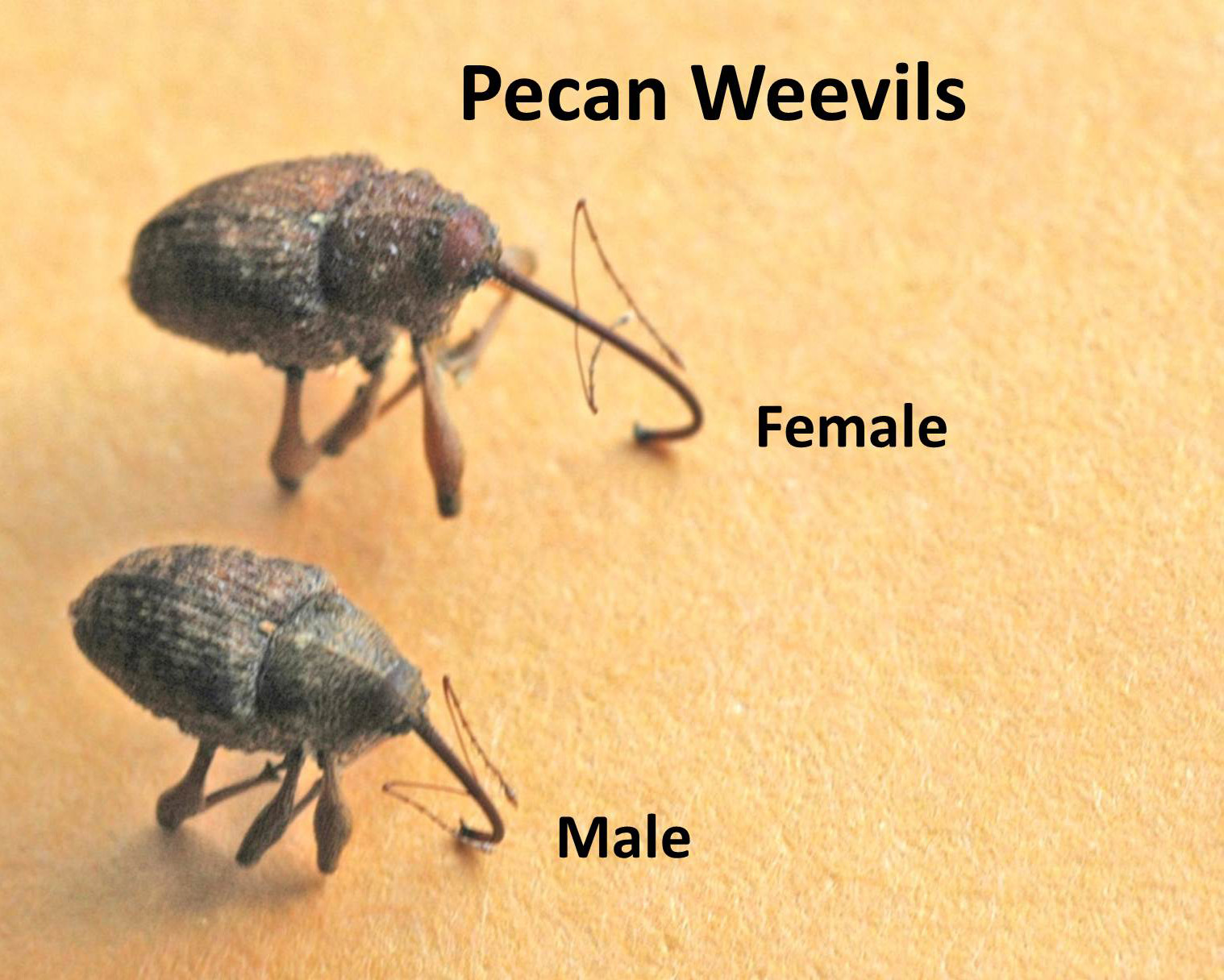 In an unusually nutty case, the parties’ arbitration clause provided:
In an unusually nutty case, the parties’ arbitration clause provided:
All disputes, claims, or controversies arising out of or relating to this Agreement, or the breach thereof, except as to the quality of the product delivered, shall be settled solely by arbitration held in Dallas, Texas, in accordance with the rules then obtaining of the American Arbitration Association, and judgment upon any award may be entered in any court having jurisdiction thereof.
(emphasis added). The plaintiff’s allegations “[a]ll . . . concern whether the pecan pieces San Saba sold contained pecan weevil larvae so that they were not merchantable and were unfit for human consumption” – in other words, claims about “the quality of the produce delivered” within the meaning of the above carveout. The Fifth Court thus affirmed the trial court’s denial of a motion to compel arbitration. San Saba Pecan LP v. Give & Go Prepared Foods Corp., No. 05-19-00214-CV (Dec. 6, 2019) (mem. op.)
 Faced with a lack of appellate jurisdiction because of a nonfinal order, a party suggested abatement to cure the problem rather than dismissal. The Fifth Court rejected that request: “In so doing, we note nothing in the record reflects determination of the counterclaims will be perfunctory. Nor
Faced with a lack of appellate jurisdiction because of a nonfinal order, a party suggested abatement to cure the problem rather than dismissal. The Fifth Court rejected that request: “In so doing, we note nothing in the record reflects determination of the counterclaims will be perfunctory. Nor  does the record reflect a determination is imminent. No trial date has been set, and the record reflects December 20, 2019 is the date set for a hearing on appellant’s motion to set a trial date.” Dixon v. Principal Management Group, Inc., No. 05-19-00895-CV (Dec. 3, 2019) (mem. op.) (citations omitted).
does the record reflect a determination is imminent. No trial date has been set, and the record reflects December 20, 2019 is the date set for a hearing on appellant’s motion to set a trial date.” Dixon v. Principal Management Group, Inc., No. 05-19-00895-CV (Dec. 3, 2019) (mem. op.) (citations omitted).
 The current state of play about the TCPA in the Fifth Court is well-illustrated by Rouzier v. BioTE Medical, LLC, No. 05-19-00277-CV (Nov. 22, 2019) (mem. op.) (applying, inter alia, Forget About It, Inc. v. BoiTE Medical, LLC, No. 05-18-01290-CV, 2019 WL 3798180 (Tex. App.—Dallas Aug. 13, 2019, pet. filed). It addresses the application of the TCPA’s protection of speech and association rights to business-related communications in the healthcare industry, as well as the application of the commercial-speech exemption in that setting.
The current state of play about the TCPA in the Fifth Court is well-illustrated by Rouzier v. BioTE Medical, LLC, No. 05-19-00277-CV (Nov. 22, 2019) (mem. op.) (applying, inter alia, Forget About It, Inc. v. BoiTE Medical, LLC, No. 05-18-01290-CV, 2019 WL 3798180 (Tex. App.—Dallas Aug. 13, 2019, pet. filed). It addresses the application of the TCPA’s protection of speech and association rights to business-related communications in the healthcare industry, as well as the application of the commercial-speech exemption in that setting.
Good news, Charles timely appealed the default judgment against her. “Charles filed her notice of appeal fourteen days after the trial court entered judgment.”
Bad news, nothing to appeal: “Because Charles did not file a motion for new trial, she did not introduce any evidence extrinsic to the record to support her satisfaction of any of the Craddock factors. Consequently, we hold that Charles has waived appellate review of her complaint that the trial court’s default judgment should be set aside.” Charles v. Crown Asset Management LLC, No. 05-18-01139-CV (Nov. 26, 2019) (mem. op.).
 The Fifth Circuit’s recent opinion in Cutrer v. Tarrant County Local Workforce Development Board, discussed here on 600Camp, offers this fascinating tidbit about why a Texas county’s administrator is called a “county judge”:
The Fifth Circuit’s recent opinion in Cutrer v. Tarrant County Local Workforce Development Board, discussed here on 600Camp, offers this fascinating tidbit about why a Texas county’s administrator is called a “county judge”:
“The position of county judge is a remnant of Texas’s time as part of Mexico. Title II, Section VII of the 1827 Constitution of the State of Coahuila and Texas established Ayuntamientos (town councils), charged with municipal administration. And under Article 159 of the 1827 Constitution, the council was to include “Alcades.” “Alcade” is a Spanish term for a magistrate who performs both executive and judicial functions. Today, the county judge principally serves as the chief executive of a Texas county. See Tex. Const. art. V, §§ 16, 18. But in keeping with the historical pedigree of the office, a county judge still performs some judicial functions. See, e.g., Tex. Est. Code § 1002.008(a)(1); Tex. Health & Safety Code §§ 571.012, 573.012.”
A scholarly, yet highly readable article in the Texas Supreme Court Historical Society Journal by former Justice Jason Boatright offers further background on this modern-day legacy of Spanish and Mexican law.
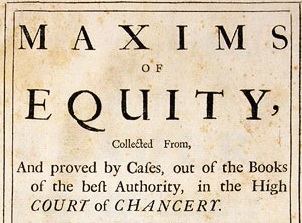 A bill of review is an equitable proceeding allowed by Texas law to challenge a default judgment. While equitable in nature, the proceeding still has serious proof requirements; in particular: “‘[T]he testimony of a bill of review plaintiff alone, without corroborating evidence, is insufficient to overcome the presumption that the plaintiff was served.’ Here, the evidence showed that . . . appellant was personally served . . . at 3815 N. Westmoreland at 7 p.m. on March 23, 2016. The officer’s return is prima facie evidence of the facts of service. Although appellant testified he was not served at that address, there was no other evidence to corroborate that statement. Although he admitted an unrecorded contract for deed showing a conveyance of the Westmoreland property to Alfredo Guzman in 2008, this document does not corroborate his testimony that he was not served at the location.” Mitchell v. City of Dallas, No. 05-18-01208-CV (Nov. 20, 2019) (unpubl.) (citations omitted, emphasis added).
A bill of review is an equitable proceeding allowed by Texas law to challenge a default judgment. While equitable in nature, the proceeding still has serious proof requirements; in particular: “‘[T]he testimony of a bill of review plaintiff alone, without corroborating evidence, is insufficient to overcome the presumption that the plaintiff was served.’ Here, the evidence showed that . . . appellant was personally served . . . at 3815 N. Westmoreland at 7 p.m. on March 23, 2016. The officer’s return is prima facie evidence of the facts of service. Although appellant testified he was not served at that address, there was no other evidence to corroborate that statement. Although he admitted an unrecorded contract for deed showing a conveyance of the Westmoreland property to Alfredo Guzman in 2008, this document does not corroborate his testimony that he was not served at the location.” Mitchell v. City of Dallas, No. 05-18-01208-CV (Nov. 20, 2019) (unpubl.) (citations omitted, emphasis added).
 Simmons sued Cook for securities fraud; Cook move to dismiss under the TCPA, and the Fifth Court found that Cook failed to show that Simmons’s lawsuit was “in response to” any potentially-protected communication: “Cook does not dispute that Simmons’s pleadings do not mention Cook’s interview with the Texas Rangers or make any reference to Paxton or Servergy. Nor is there any evidence that Simmons was involved in any way with the Texas Rangers’s investigation. According to Cook, his interview was about Paxton, not Simmons. Simmons’s allegations are that Cook made misrepresentations in the sale of securities. ‘Any activities [by Cook] that are not a factual predicate for [Simmons’s] claims are not pertinent to our inquiry regarding whether the TCPA applies.'” Cook v. Simmons, No. 05-19-00091-CV (Nov. 12, 2019) (mem. op.) (citation omitted).
Simmons sued Cook for securities fraud; Cook move to dismiss under the TCPA, and the Fifth Court found that Cook failed to show that Simmons’s lawsuit was “in response to” any potentially-protected communication: “Cook does not dispute that Simmons’s pleadings do not mention Cook’s interview with the Texas Rangers or make any reference to Paxton or Servergy. Nor is there any evidence that Simmons was involved in any way with the Texas Rangers’s investigation. According to Cook, his interview was about Paxton, not Simmons. Simmons’s allegations are that Cook made misrepresentations in the sale of securities. ‘Any activities [by Cook] that are not a factual predicate for [Simmons’s] claims are not pertinent to our inquiry regarding whether the TCPA applies.'” Cook v. Simmons, No. 05-19-00091-CV (Nov. 12, 2019) (mem. op.) (citation omitted).
 “After the justice court held a jury trial in a forcible detainer suit and the jury rendered a verdict, appellant appealed to the county court. The county court ruled in appellees’ favor, and appellant appealed. The record before this
“After the justice court held a jury trial in a forcible detainer suit and the jury rendered a verdict, appellant appealed to the county court. The county court ruled in appellees’ favor, and appellant appealed. The record before this  Court includes only the jury verdict from the justice court and not a judgment from the justice court.” Because the Fifth Court has no more jurisdiction than the court appealed from, it dismissed Anderson v. Weed for lack of appellate jurisdiction. No. 05-19-00864-CV (Nov. 14, 2019) (mem. op.)
Court includes only the jury verdict from the justice court and not a judgment from the justice court.” Because the Fifth Court has no more jurisdiction than the court appealed from, it dismissed Anderson v. Weed for lack of appellate jurisdiction. No. 05-19-00864-CV (Nov. 14, 2019) (mem. op.)
 An insurer failed to show prejudice, and thus could not take advantage of a “consent-to-settle” provision in an uninsured motorist first-party policy. The key Texas Supreme Court case “did not recognize difficulty in proving the value of a potential subrogation claim as sufficient prejudice”; to the contrary, it “indicates that the only kind of prejudice sufficient to make a consent-to-settlement breach material is loss of a valuable subrogation right[.]” And the insurer also failed to conclusively prove a loss of value, even under its view of the law. Davis v. State Farm Lloyds, No. 05-18-00969-CV (Nov. 12, 2019) (mem. op.).
An insurer failed to show prejudice, and thus could not take advantage of a “consent-to-settle” provision in an uninsured motorist first-party policy. The key Texas Supreme Court case “did not recognize difficulty in proving the value of a potential subrogation claim as sufficient prejudice”; to the contrary, it “indicates that the only kind of prejudice sufficient to make a consent-to-settlement breach material is loss of a valuable subrogation right[.]” And the insurer also failed to conclusively prove a loss of value, even under its view of the law. Davis v. State Farm Lloyds, No. 05-18-00969-CV (Nov. 12, 2019) (mem. op.).
 In a fraudulent-transfer case, the Fifth Court reversed the denial of a German company’s special appearance when: “AEG Germany was not a party to the Manufacturing Agreement or the Security Agreement;it was not involved inthe “order process” with Power Max and AEG USA;nor was it a party to AEG USA’s lawsuit against Power Max. In fact, Creation has not alleged any contacts by AEG Germany with the state of Texas that ‘give rise’ to Creation’s claims against it, apart from the allegation that AEG Germany was the recipient of fraudulently transferred assets. . . . [A]s the above [“effects test”] cases show, even if we assume a tort was somehow committed and that AEG Germany knew its actions would cause an injury in Texas (assumptions this record does not support), the alleged contacts do not rise to the level of purposeful availment simply because Creation is a Texas company or the alleged harm occurred in Texas.” AEG Power Solutions v. Creation Technologies, No. 05-19-00195-CV (Nov. 12, 2019) (mem. op.)
In a fraudulent-transfer case, the Fifth Court reversed the denial of a German company’s special appearance when: “AEG Germany was not a party to the Manufacturing Agreement or the Security Agreement;it was not involved inthe “order process” with Power Max and AEG USA;nor was it a party to AEG USA’s lawsuit against Power Max. In fact, Creation has not alleged any contacts by AEG Germany with the state of Texas that ‘give rise’ to Creation’s claims against it, apart from the allegation that AEG Germany was the recipient of fraudulently transferred assets. . . . [A]s the above [“effects test”] cases show, even if we assume a tort was somehow committed and that AEG Germany knew its actions would cause an injury in Texas (assumptions this record does not support), the alleged contacts do not rise to the level of purposeful availment simply because Creation is a Texas company or the alleged harm occurred in Texas.” AEG Power Solutions v. Creation Technologies, No. 05-19-00195-CV (Nov. 12, 2019) (mem. op.)
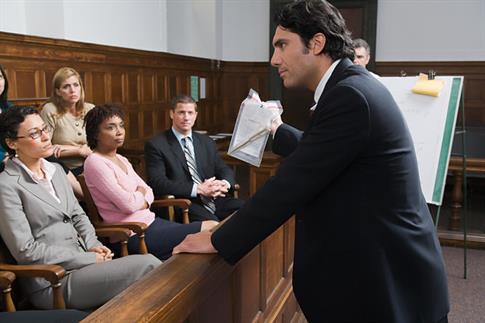 The Fifth Court found that the following closing argument was not “incurable” (and thus, had to be objected to during trial). During voir dire, after noting the trial court’s instruction that lawyer argument was not evidence, Plaintiffs’ counsel said:
The Fifth Court found that the following closing argument was not “incurable” (and thus, had to be objected to during trial). During voir dire, after noting the trial court’s instruction that lawyer argument was not evidence, Plaintiffs’ counsel said:
Despite that, I’ll make a pledge to you, everything I tell you will be 100-percent accurate and truthful. I have been known to make a mistake. If I make that mistake, I’ll own it in closing argument at the end of the case.
Later, during closing argument, defense counsel argued:
Do you remember the pledge that Plaintiffs’ counsel made to you before this trial started? If there was a mistake, he would own it. Okay. So, let’s look at that. He puts up on that overhead what my client says, “I’m responsible for the damages.” For the accident, yes. But what he doesn’t remind you of, he also asked my client, “Do you know what their injuries are, what their treatments are?” He had no idea. So, to insinuate that my client is going to say, “I accept all of this,” is ridiculous. That’s dishonest.”
The Court noted that “‘[u]nsubstantiated attacks on the integrity or veracity of a party or counsel’ has been cited as a type of jury argument that is deemed incurable,” but found that this argument was not incurable given the earlier argument of Plaintiffs’ counsel, Plaintiff’s counsel’s rebuttal of the argument later, and the jury verdict that was generally consistent with the evidence on the central trial issue about damages. Hopkins v. Phillips, No. 05-18-01143-CV (Oct, 29, 2019) (mem. op.)
 In a dispute about standing to assert rights as a partner, the Fifth Court made this general procedural point: “Although appellants did not file a rule 93 verified ‘denial of partnership,’ the record shows [plaintiffs] did not assert their ‘admission’ argument below. Rather, [plaintiffs’] claimed status as a . . . partner was a primary focus of both sides’ arguments at trial. On this record, we conclude capacity was tried by consent.” (citations omitted, applying Highland Credit v. UBS, 451 S.W.3d 508, 515 (Tex. App.—Dallas 2014, no pet.). Malouf v. Sterquell PSF Settlement LC, No. 05-17-01343-CV (Nov. 7, 2019) (mem. op.)
In a dispute about standing to assert rights as a partner, the Fifth Court made this general procedural point: “Although appellants did not file a rule 93 verified ‘denial of partnership,’ the record shows [plaintiffs] did not assert their ‘admission’ argument below. Rather, [plaintiffs’] claimed status as a . . . partner was a primary focus of both sides’ arguments at trial. On this record, we conclude capacity was tried by consent.” (citations omitted, applying Highland Credit v. UBS, 451 S.W.3d 508, 515 (Tex. App.—Dallas 2014, no pet.). Malouf v. Sterquell PSF Settlement LC, No. 05-17-01343-CV (Nov. 7, 2019) (mem. op.)
 The Fifth Court affirmed a TCPA dismissal in Kappos v. Baxter: “As part of his representation of his clients, Baxter stated in a motion filed in the federal litigation that there was a judgment in the underlying California state-court litigation. Whether the statements were wrong, fraudulent, or part of a conspiracy to defraud Kappos does not affect the applicability of the defense of attorney immunity. Kappos was not Baxter’s client. Therefore, following Youngkin, we conclude that Baxter is immune from Kappos’s suit based on his actions while representing his clients, including his statements in court filings that there was a judgment in the California state-court litigation. We conclude Baxter established by a preponderance of the evidence the elements of the defense of attorney immunity.” No. 05-19-00020-CV (Oct. 30, 2019) (mem. op.)
The Fifth Court affirmed a TCPA dismissal in Kappos v. Baxter: “As part of his representation of his clients, Baxter stated in a motion filed in the federal litigation that there was a judgment in the underlying California state-court litigation. Whether the statements were wrong, fraudulent, or part of a conspiracy to defraud Kappos does not affect the applicability of the defense of attorney immunity. Kappos was not Baxter’s client. Therefore, following Youngkin, we conclude that Baxter is immune from Kappos’s suit based on his actions while representing his clients, including his statements in court filings that there was a judgment in the California state-court litigation. We conclude Baxter established by a preponderance of the evidence the elements of the defense of attorney immunity.” No. 05-19-00020-CV (Oct. 30, 2019) (mem. op.)
 The Fifth Court summarized the current state of its precedent on the difficult interplay between estoppel and standing in probate cases: “In her answer to the will contest, Lisa Jo pled the affirmative defense of estoppel, and was therefore required to demonstrate Tia’s acceptance of the proceeds of the mutual fund was inconsistent with her challenge to the Will. . . . .Rather than satisfy her burden, Lisa Jo relied on a case that disagreed with our holding in Holcomb,and argued Tia was burdened with disproving estoppel. Declining an unacceptable invitation for one panel of this court to disregard the holding of another panel, we hold Lisa Jo failed to satisfy her burden, as the Will’s proponent, by failing to demonstrate that Tia accepted greater benefits than those to which she was entitled under the Will or intestacy laws.” In re Estate of Johnson, No. 05-18-01193-CV (Nov. 4, 2019) (unpubl.)
The Fifth Court summarized the current state of its precedent on the difficult interplay between estoppel and standing in probate cases: “In her answer to the will contest, Lisa Jo pled the affirmative defense of estoppel, and was therefore required to demonstrate Tia’s acceptance of the proceeds of the mutual fund was inconsistent with her challenge to the Will. . . . .Rather than satisfy her burden, Lisa Jo relied on a case that disagreed with our holding in Holcomb,and argued Tia was burdened with disproving estoppel. Declining an unacceptable invitation for one panel of this court to disregard the holding of another panel, we hold Lisa Jo failed to satisfy her burden, as the Will’s proponent, by failing to demonstrate that Tia accepted greater benefits than those to which she was entitled under the Will or intestacy laws.” In re Estate of Johnson, No. 05-18-01193-CV (Nov. 4, 2019) (unpubl.)
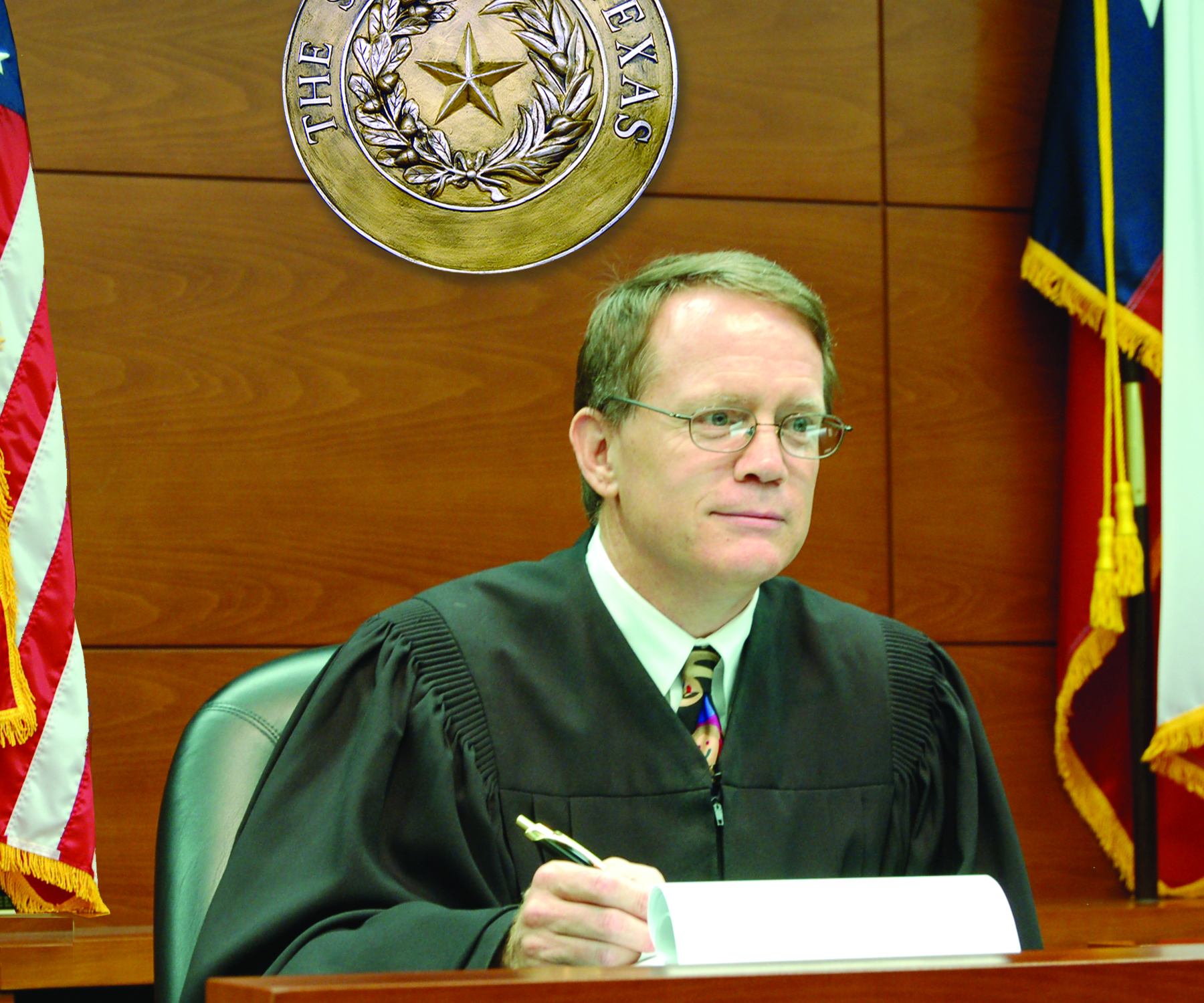 Governor Abbott has appointed Hon. David Evans to return to the Fifth Court and fill its vacant seat; Law360 reports that he may continue to hear some matters from the district court where he presently serves until his replacement is appointed and up to speed. Judge Evans recently donated a kidney to his former colleague, Hon. Carolyn Wright, an act that has raised local awareness about living organ donation. Welcome back, Justice Evans!
Governor Abbott has appointed Hon. David Evans to return to the Fifth Court and fill its vacant seat; Law360 reports that he may continue to hear some matters from the district court where he presently serves until his replacement is appointed and up to speed. Judge Evans recently donated a kidney to his former colleague, Hon. Carolyn Wright, an act that has raised local awareness about living organ donation. Welcome back, Justice Evans!
An excellent recent article in Law360 summarizes the state of the sometimes-Byzantine structure of Texas’s intermediate appellate courts. The article is behind Law360’s paywall but my remarks are below:
 It’s a simple but fundamental point – confirm that the record has the relevant order (or, that there is in fact such an order); see, e.g.:
It’s a simple but fundamental point – confirm that the record has the relevant order (or, that there is in fact such an order); see, e.g.:
- “Because the record does not show relator ever filed the motion, we cannot conclude the trial court has a legal duty to rule upon it.” In re Johnson, No. 05-19-00708-CV (Oct. 21, 2019) (mem. op.); and
- Although appellant asks that the bond be reduced, the record before this Court does not contain a signed order setting the supersedeas bond. Without an order, there is nothing before this Court to review.” Chowdhury v. Wells Fargo Bank, No. 05-19-00965-CV (Oct. 25, 2019) (mem. op.)
The Texas Family Code says: “In a suit in which termination of the parent-child relationship is requested, the court shall appoint an attorney ad litem to represent the interests of: (1) an indigent parent of the child who responds in opposition to the termination.” Accordingly, it is a reversible abuse of discretion not to do so. In re R.R.-L., No. 05-19-00507-CV (Oct. 23, 2019).
 The parties’ contract had a 4-year term:
The parties’ contract had a 4-year term:
“Subject to jcpenny’s rights to relocate or otherwise change or alter the shops as specified below, the parties agree that the Bodum and O&R Shops will be featured in the designated jcpenny stores for a period of 4 years from the opening date . . .”
But, the “rights . . . specified below” included the right to:
remove, alter, or relocate any and all Bodum or O&R Shops or any portion of a Bodum or O&R Shop. . .
Accordingly, the contract was terminable at will. Bodum USA, Inc. v. J.C. Penney Co., No. 05-18-00813-CV (Oct. 23, 2019) (The opinion has a thorough discussion of Texas contract-interpretation principles, including a reminder that contra proferentum “is a doctrine of last resort.” Substantively, the parties do not appear to have argued whether this termination right made the contract illusory.)
 “The court of appeals granted our stay motion! We’re looking good on the mandamus now!” Not necessarily, as shown by In re Gurley, No. 05-19-01118-CV (Oct. 18, 2019) (mem. op.): ” We stayed the trial court’s September 13, 2019 order granting the motion to expunge the lis pendens pending our disposition of the mandamus petition. On our request, real parties filed a response to the mandamus petition. . . . After reviewing the petition for writ of mandamus, the response filed by real parties, and the applicable law, we conclude relator
“The court of appeals granted our stay motion! We’re looking good on the mandamus now!” Not necessarily, as shown by In re Gurley, No. 05-19-01118-CV (Oct. 18, 2019) (mem. op.): ” We stayed the trial court’s September 13, 2019 order granting the motion to expunge the lis pendens pending our disposition of the mandamus petition. On our request, real parties filed a response to the mandamus petition. . . . After reviewing the petition for writ of mandamus, the response filed by real parties, and the applicable law, we conclude relator
has not shown he is entitled to the relief requested.”
 After the Confederate disaster at Gettysburg in 1863, the wily Robert E. Lee held off Ulysses Grant for two more years in a series of battles. Dallas’s Confederate statuary is proving similarly wily; after an initial stay to receive full briefing on the point, the Fifth Court agreed that a writ of injunction was appropriate to maintain the downtown Confederate memorial (right, in part): “The Monument was created in 1896 and has already been relocated once. There is no guarantee that the removal process will be seamless and without damage to the Monument, or that if it is ultimately returned to Pioneer Cemetery that it will be in the same condition as it is today.” The Court required the plaintiff to post a $50,000 bond. It also found that a similar application was moot as to a statute of Lee that has already been sold and reinstalled in the Big Bend area of far West Texas (Texas, incidentally, being the location of Lee’s last command in the U.S. Army before siding with the Confederacy.) In re: Return to Lee Park, No. 05-19-00774-CV (Oct. 10, 2019) (mem. op.)
After the Confederate disaster at Gettysburg in 1863, the wily Robert E. Lee held off Ulysses Grant for two more years in a series of battles. Dallas’s Confederate statuary is proving similarly wily; after an initial stay to receive full briefing on the point, the Fifth Court agreed that a writ of injunction was appropriate to maintain the downtown Confederate memorial (right, in part): “The Monument was created in 1896 and has already been relocated once. There is no guarantee that the removal process will be seamless and without damage to the Monument, or that if it is ultimately returned to Pioneer Cemetery that it will be in the same condition as it is today.” The Court required the plaintiff to post a $50,000 bond. It also found that a similar application was moot as to a statute of Lee that has already been sold and reinstalled in the Big Bend area of far West Texas (Texas, incidentally, being the location of Lee’s last command in the U.S. Army before siding with the Confederacy.) In re: Return to Lee Park, No. 05-19-00774-CV (Oct. 10, 2019) (mem. op.)
![]() John Doe, a shadowy figure who has haunted Anglo-American jurisprudence for centuries, produced a failure of appellate jurisdiction in Chappell v. City of Balch Springs. Chappell sued “the City of Balch Springs, Shaila Lynn Gay, Jonathan Haber, and John Doe Supervisors 1-5.” The three named defendants successfully moved to dismiss under Rule 91a, but Chappell was unable to appeal because her “claims against John Doe Supervisors 1-5 remain pending” and thus kept the Rule 91a order from becoming a final judgment. No. 05-19-01046-CV (Oct. 7, 2019) (mem. op.)
John Doe, a shadowy figure who has haunted Anglo-American jurisprudence for centuries, produced a failure of appellate jurisdiction in Chappell v. City of Balch Springs. Chappell sued “the City of Balch Springs, Shaila Lynn Gay, Jonathan Haber, and John Doe Supervisors 1-5.” The three named defendants successfully moved to dismiss under Rule 91a, but Chappell was unable to appeal because her “claims against John Doe Supervisors 1-5 remain pending” and thus kept the Rule 91a order from becoming a final judgment. No. 05-19-01046-CV (Oct. 7, 2019) (mem. op.)
 In Stegall v. TML Multistate Intergovernmental Employee Benefits Pool, Inc., the panel majority (Justice Pedersen writing, joined by Justice Whitehill) held that a serious medical-treatment claim about cancer treatment was barred by the sovereign immunity of two parties:”TML . . . an intergovernmental self-insurance risk pool that operates under the Texas Interlocal Cooperation Act,” and UMR . . . one of TML’s third-party administrators.” It summarized: “This case presents an emotional and tragic scenario in which we are asked to ignore the governmental immunity enjoyed by TML and UMR. However, this Court . . . must apply the law, and mandatory authority interpreting such law, to effectuate the Legislature’s intent.”
In Stegall v. TML Multistate Intergovernmental Employee Benefits Pool, Inc., the panel majority (Justice Pedersen writing, joined by Justice Whitehill) held that a serious medical-treatment claim about cancer treatment was barred by the sovereign immunity of two parties:”TML . . . an intergovernmental self-insurance risk pool that operates under the Texas Interlocal Cooperation Act,” and UMR . . . one of TML’s third-party administrators.” It summarized: “This case presents an emotional and tragic scenario in which we are asked to ignore the governmental immunity enjoyed by TML and UMR. However, this Court . . . must apply the law, and mandatory authority interpreting such law, to effectuate the Legislature’s intent.”
A dissent (Justice Partida-Kipness) saw the issue differently: “By creating and participating in the risk pool, TML performed a governmental function for which immunity applies. The governmental nature of its actions, however, ended with that pooling. Stegall maintains that TML and UMR caused the wrongful death of her husband through improper claims adjustment procedures and decisions. . . . . Those actions are not governmental functions because they are decisions related to the adjusting of an individual insurance claim.” No. 05-18-00239-CV (Oct. 2, 2019) (mem. op.) (all emphasis added).
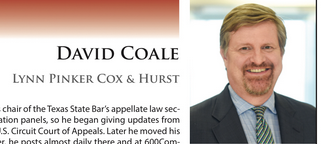 600Commerce and 600Camp are recognized in the first-ever list of “Texas Trailblazers,” as just published by Texas Lawyer!
600Commerce and 600Camp are recognized in the first-ever list of “Texas Trailblazers,” as just published by Texas Lawyer!
The petitioner in a TCPA dispute argued that it was controlled by a previous panel opinion called Hartley, and the Fifth Court agreed. It summarized the applicable rules, very similar to the Fifth Circuit’s “rule of orderliness” –
The real parties in interest argue that Hartley is distinguishable because they present arguments and authorities that were not discussed in this Court’s opinion in Hartley. However, those arguments do not distinguish Hartley. If we agreed with those arguments, we would have to conclude Hartley was wrongly decided and must be overruled. We follow our own precedent. Dyer v. Medoc Health Servs., LLC, 573 S.W.3d 418, 427 (Tex. App.—Dallas 2019, pet. denied). “We may not overrule a prior panel decision of this Court absent an intervening change in the law by the legislature, a higher court, or this Court sitting en banc.” MobileVision Imaging Servs., L.L.C. v. LifeCare Hosps. of N. Tex., L.P., 260 S.W.3d 561, 566 (Tex. App.—Dallas 2008, no pet.). Accordingly, we adhere to our decision in Hartley.
No. 05-19-01016-CV (Sept. 23, 2019) (mem. op.).
 Like its counterpart in Greek mythology, the hydra of mandamus jurisdiction is a many-headed beast – but it only reaches the work of a Justice of the Peace under very limited circumstances: “This Court does not have writ jurisdiction over a justice of the peace unless the justice is interfering with our appellate jurisdiction. See Tex. Gov’t Code Ann. § 22.221(a), (b).” In re Gardner, No. 05-19-01087-CV (Sept. 20, 2019) (mem. op.). The referenced Government Code provisions provide:
Like its counterpart in Greek mythology, the hydra of mandamus jurisdiction is a many-headed beast – but it only reaches the work of a Justice of the Peace under very limited circumstances: “This Court does not have writ jurisdiction over a justice of the peace unless the justice is interfering with our appellate jurisdiction. See Tex. Gov’t Code Ann. § 22.221(a), (b).” In re Gardner, No. 05-19-01087-CV (Sept. 20, 2019) (mem. op.). The referenced Government Code provisions provide:
Sec. 22.221. WRIT POWER. (a) Each court of appeals or a justice of a court of appeals may issue a writ of mandamus and all other writs necessary to enforce the jurisdiction of the court.
(b) Each court of appeals for a court of appeals district may issue all writs of mandamus, agreeable to the principles of law regulating those writs, against:
(1) a judge of a district, statutory county, statutory probate county, or county court in the court of appeals district;
(2) a judge of a district court who is acting as a magistrate at a court of inquiry under Chapter 52, Code of Criminal Procedure, in the court of appeals district; or
(3) an associate judge of a district or county court appointed by a judge under Chapter 201, Family Code, in the court of appeals district for the judge who appointed the associate judge.
 This blog’s “older sister,” 600Camp, celebrates its birthday this week, and invites you to join the festivity with some shrimp remoulade; here’s the recipe from Galatoire’s so you can spice up your week!
This blog’s “older sister,” 600Camp, celebrates its birthday this week, and invites you to join the festivity with some shrimp remoulade; here’s the recipe from Galatoire’s so you can spice up your week!
 Can a trial court sidestep the TCPA’s timely-hearing requirement? “This mandamus proceeding presents the question whether the trial court has the discretion to deny a TCPA movant’s reasonable requests for a timely hearing and set the motion for hearing after the last possible date that the TCPA permits. We hold that the trial court lacks such discretion because the TCPA requires the trial court to hold a timely hearing when the movant acts with reasonable diligence to obtain such a hearing. We further hold that the TCPA movant in this situation lacks an adequate remedy by appeal because he forfeits TCPA relief, including a right to an interlocutory appeal, if a timely hearing is not held.” In re Herbert, No. 05-19-00126-CV (Sept. 19, 2019).
Can a trial court sidestep the TCPA’s timely-hearing requirement? “This mandamus proceeding presents the question whether the trial court has the discretion to deny a TCPA movant’s reasonable requests for a timely hearing and set the motion for hearing after the last possible date that the TCPA permits. We hold that the trial court lacks such discretion because the TCPA requires the trial court to hold a timely hearing when the movant acts with reasonable diligence to obtain such a hearing. We further hold that the TCPA movant in this situation lacks an adequate remedy by appeal because he forfeits TCPA relief, including a right to an interlocutory appeal, if a timely hearing is not held.” In re Herbert, No. 05-19-00126-CV (Sept. 19, 2019).
 In Duncan v. Acius Group, the panel agreed that the TCPA can reach statements about the topic of animal cruelty, but differed on the connection of a particular statement to that topic. Justice Partida-Kipness’s dissent argued: “I do not disagree that an allegation of animal cruelty can be a matter of public concern, the context and situation surrounding Morris-Duncan’s purported statement about Maxwell does not support such a conclusion here. It is clear from the context of her statements about Maxwell, that Morris-Duncan’s alleged comments were not made out of a concern for the welfare and safety of the animals under Maxwell’s care,but rather out of a desire –to paint Maxwell ina bad light and to call his character into question after ACIUS terminated her husband’s employment.” (emphasis added). The panel also reaffirmed that a nonsuit does not moot a TCPA motion. No. 05-18-01432-CV (Sept. 13, 2019) (mem. op.)
In Duncan v. Acius Group, the panel agreed that the TCPA can reach statements about the topic of animal cruelty, but differed on the connection of a particular statement to that topic. Justice Partida-Kipness’s dissent argued: “I do not disagree that an allegation of animal cruelty can be a matter of public concern, the context and situation surrounding Morris-Duncan’s purported statement about Maxwell does not support such a conclusion here. It is clear from the context of her statements about Maxwell, that Morris-Duncan’s alleged comments were not made out of a concern for the welfare and safety of the animals under Maxwell’s care,but rather out of a desire –to paint Maxwell ina bad light and to call his character into question after ACIUS terminated her husband’s employment.” (emphasis added). The panel also reaffirmed that a nonsuit does not moot a TCPA motion. No. 05-18-01432-CV (Sept. 13, 2019) (mem. op.)
 A litigant requested that the Fifth Court take judicial notice of information about the address of an entity; the Court declined to do so: “That document is not part of the summary-judgment evidence. We decline to take judicial notice of the document. ‘The Court of Appeals is not a trier of fact. “For us to consider evidence for the first time, never presented to the trial court, would effectively convert this Court into a court of original, not appellate jurisdiction.”‘ . . . Appellate courts may take judicial notice of documents outside the appellate record to determine their jurisdiction or to resolve matters ancillary to decisions that are mandated by law, such as calculation of prejudgment interest when the appellate court renders judgment. This case does not involve those situations.” Thornton v. Columbia Medical Center, No. 05-18-01010-CV (Sept. 12, 2019) (mem. op.).
A litigant requested that the Fifth Court take judicial notice of information about the address of an entity; the Court declined to do so: “That document is not part of the summary-judgment evidence. We decline to take judicial notice of the document. ‘The Court of Appeals is not a trier of fact. “For us to consider evidence for the first time, never presented to the trial court, would effectively convert this Court into a court of original, not appellate jurisdiction.”‘ . . . Appellate courts may take judicial notice of documents outside the appellate record to determine their jurisdiction or to resolve matters ancillary to decisions that are mandated by law, such as calculation of prejudgment interest when the appellate court renders judgment. This case does not involve those situations.” Thornton v. Columbia Medical Center, No. 05-18-01010-CV (Sept. 12, 2019) (mem. op.).
 The trial court held Steven Topletz in contempt for not producing documents about a family trust, punishing him with a fine and 14 days in jail. The Fifth Court denied his habeas application, noting that Topletz, as a trust beneficiary, had a right under the trust instrument to request the relevant material (thus distinguishing In re: Kuntz, 124 S.W.3d 179 (Tex. 2003), which involved the petitioner’s physical access to documents he did not have a legal right to.) In re Topletz, No. 05-19-00327-CV (Sept 11, 2019) (mem. op.).
The trial court held Steven Topletz in contempt for not producing documents about a family trust, punishing him with a fine and 14 days in jail. The Fifth Court denied his habeas application, noting that Topletz, as a trust beneficiary, had a right under the trust instrument to request the relevant material (thus distinguishing In re: Kuntz, 124 S.W.3d 179 (Tex. 2003), which involved the petitioner’s physical access to documents he did not have a legal right to.) In re Topletz, No. 05-19-00327-CV (Sept 11, 2019) (mem. op.).
 The Fifth Court reaffirmed its treatment of an important procedural issue about the TCPA in Bass v. United Devel. Funding: “[F]ollowing our precedent, we only consider the pleadings and evidence in favor of the plaintiff’s case when determining whether it established the requisite prima facie proof. It is not this Court’s province to consider and weigh evidence submitted by Hayman to contradict UDF’s evidence.” No. 05-18-00752-CV (Aug. 21, 2019) (mem. op.):
The Fifth Court reaffirmed its treatment of an important procedural issue about the TCPA in Bass v. United Devel. Funding: “[F]ollowing our precedent, we only consider the pleadings and evidence in favor of the plaintiff’s case when determining whether it established the requisite prima facie proof. It is not this Court’s province to consider and weigh evidence submitted by Hayman to contradict UDF’s evidence.” No. 05-18-00752-CV (Aug. 21, 2019) (mem. op.):
 Today’s Dallas Morning News reports on an extraordinary act of kindness involving former Justices of the Fifth Court – Hon. David Evans is donating a kidney to Hon. Carolyn Wright. Every best wish to them both.
Today’s Dallas Morning News reports on an extraordinary act of kindness involving former Justices of the Fifth Court – Hon. David Evans is donating a kidney to Hon. Carolyn Wright. Every best wish to them both.
 The law firm of Riggs & Ray and the State Fair of Texas have been involved in a long-running dispute about the firm’s “public information” requests to the Fair. In the latest chapter, Riggs & Ray, P.C. v. State of Fair of Texas, the Fifth Court reversed the TCPA dismissal of a declaratory-judgment lawsuit brought by R&R against the Fair about the Fair’s public-inforaation obligations, finding that the Fair had not established a sufficient connection to the rights of petition or speech. A dissent said that the majority required too tight a connection to protected activity, noting: “The predicate communication here is SFT’s thrice judicially communicated (right to
The law firm of Riggs & Ray and the State Fair of Texas have been involved in a long-running dispute about the firm’s “public information” requests to the Fair. In the latest chapter, Riggs & Ray, P.C. v. State of Fair of Texas, the Fifth Court reversed the TCPA dismissal of a declaratory-judgment lawsuit brought by R&R against the Fair about the Fair’s public-inforaation obligations, finding that the Fair had not established a sufficient connection to the rights of petition or speech. A dissent said that the majority required too tight a connection to protected activity, noting: “The predicate communication here is SFT’s thrice judicially communicated (right to
petition) statement that it is not required to provide information to R&R regarding the City of Dallas’s financial relations with SFT (right of free speech regarding a matter of public concern),” and cautioning that the majority’s approach would weaken protection against SLAPP suits, “a category of cases at the heart of why the legislature enacted the TCPA in the first place.” No. 05-17-00973-CV (Sept. 5, 2019) (mem. op.)
 The Fifth Circuit noted a limit on its Flakes opinion in Oliver v. Saadi, No. 05-17-01403-CV (Aug. 30, 2019) (mem. op.): “Oliver is obliged to attack every ground that by and of its own force could have produced the judgment. He is not obliged to marshal and attack every subsidiary argument and citation to authority that may have informed the trial court’s thinking along the way. To be sure, the arguments relating to the admission or exclusion of evidence may vary and here include qualifications, reliability, and relevance. But none of these interstitial evidentiary debates would amount either to a ‘ground’ for summary judgment on their own account.”
The Fifth Circuit noted a limit on its Flakes opinion in Oliver v. Saadi, No. 05-17-01403-CV (Aug. 30, 2019) (mem. op.): “Oliver is obliged to attack every ground that by and of its own force could have produced the judgment. He is not obliged to marshal and attack every subsidiary argument and citation to authority that may have informed the trial court’s thinking along the way. To be sure, the arguments relating to the admission or exclusion of evidence may vary and here include qualifications, reliability, and relevance. But none of these interstitial evidentiary debates would amount either to a ‘ground’ for summary judgment on their own account.”
 The Fifth Court affirmed and part – and reversed in part – a TRCP 91a dismissal in Royale v. Knightvest Management LLC, No. 05-18-00908-CV (Aug. 30, 2019) (mem. op.). The Court summarized the standard as follows (citations omitted):
The Fifth Court affirmed and part – and reversed in part – a TRCP 91a dismissal in Royale v. Knightvest Management LLC, No. 05-18-00908-CV (Aug. 30, 2019) (mem. op.). The Court summarized the standard as follows (citations omitted):
“[W]e construe the pleadings liberally in favor of the plaintiff. Under the fair-notice pleading standard we apply to determine whether the petition’s allegations are sufficient to allege a cause of action, we assess whether the defendant can ascertain from the pleading the nature of the controversy, its basic issues, and the type of evidence that may be relevant. ‘Rule 91a provides a harsh remedy that should be strictly construed.’ The rule is not a substitute for special exception practice under rule 91 or summary judgment practice under rule 166a, both of which come with protective features. If a petition provides sufficient facts to give fair notice of the claim, then a motion seeking dismissal based on lack of a basis in fact should be denied.”
 While affirming on the merits, the Fifth Court rejected an award of attorneys’ fees under Tex. R. Civ. P. 91a when the ground for dismissal was a lack of subject matter jurisdiction rather than the merits of a pleaded claim: “[N]o Texas case has ever awarded attorney’s fees under rule 91a.7 where the dismissal resulted from a lack of subject matter jurisdiction. In these circumstances rule 91a is not the ‘vehicle’ by which the case is disposed and, conversely, jurisdiction is not a ‘ground’ to which 91a is directed.” Dallas County Republican Party v. Dallas County Democratic Party, No. 05-18-00916-CV (Aug. 26, 2019) (mem. op.)
While affirming on the merits, the Fifth Court rejected an award of attorneys’ fees under Tex. R. Civ. P. 91a when the ground for dismissal was a lack of subject matter jurisdiction rather than the merits of a pleaded claim: “[N]o Texas case has ever awarded attorney’s fees under rule 91a.7 where the dismissal resulted from a lack of subject matter jurisdiction. In these circumstances rule 91a is not the ‘vehicle’ by which the case is disposed and, conversely, jurisdiction is not a ‘ground’ to which 91a is directed.” Dallas County Republican Party v. Dallas County Democratic Party, No. 05-18-00916-CV (Aug. 26, 2019) (mem. op.)
 A highly-practical part of Texas procedure appears in Section 132.001 of the Civil Practice and Remedies Code, which says that an unsworn declaration may be used in place of an affidavit in most situations. That provision details the form that such a declaration should take. Following Hays Street Bridge Restoration Group v. City of San Antonio, 570 S.W.3d 697 (Tex. 2019), the Fifth Court found a declaration inadequate when it omitted the declarant’s birthdate and other specified information. Goldberg v. EMR (USA Holdings) Inc., No. 05-18-00261-CV (Aug. 22, 2019). (This case’s other holdings about the scope of the TCPA were significantly revised on rehearing in January 2020, as described in another blog post.)
A highly-practical part of Texas procedure appears in Section 132.001 of the Civil Practice and Remedies Code, which says that an unsworn declaration may be used in place of an affidavit in most situations. That provision details the form that such a declaration should take. Following Hays Street Bridge Restoration Group v. City of San Antonio, 570 S.W.3d 697 (Tex. 2019), the Fifth Court found a declaration inadequate when it omitted the declarant’s birthdate and other specified information. Goldberg v. EMR (USA Holdings) Inc., No. 05-18-00261-CV (Aug. 22, 2019). (This case’s other holdings about the scope of the TCPA were significantly revised on rehearing in January 2020, as described in another blog post.)
 The Fifth Court granted mandamus relief to enforce the ecclesiastical abstention doctrine in In re First Christian Methodist Evangelistic Church: “[T]his case involves questions surrounding the termination of a church employee and allegations surrounding that termination. Like the claims asserted in those [prior] cases, the Senior Pastor’s claims do not present purely secular issues of contract law first and foremost because he was not terminated from a secular position. Moreover, the Senior Pastor was not terminated based on secular rules or procedures. Rather, the Church presented evidence that the Church Conference, which is comprised solely of members in good standing of the Church, voted to terminate the Senior Pastor’s employment ‘consistent with the internal policies and procedures of the Church.'” No. 05-18-01533-CV (Aug. 30, 2019) (mem. op.) (emphasis added).
The Fifth Court granted mandamus relief to enforce the ecclesiastical abstention doctrine in In re First Christian Methodist Evangelistic Church: “[T]his case involves questions surrounding the termination of a church employee and allegations surrounding that termination. Like the claims asserted in those [prior] cases, the Senior Pastor’s claims do not present purely secular issues of contract law first and foremost because he was not terminated from a secular position. Moreover, the Senior Pastor was not terminated based on secular rules or procedures. Rather, the Church presented evidence that the Church Conference, which is comprised solely of members in good standing of the Church, voted to terminate the Senior Pastor’s employment ‘consistent with the internal policies and procedures of the Church.'” No. 05-18-01533-CV (Aug. 30, 2019) (mem. op.) (emphasis added).
 Dallas-Fort Worth is the fourth largest metropolitan area in the United States, and it is only a matter of time until it passes Chicago to become #3. Dallas is routinely ranked among the nation’s best cities. Yet, as noted in a recent Texas Lawbook op-ed, it is significantly underrepresented on the Texas Supreme Court. Hopefully, geographic diversity will play a role in future appointments to that Court.
Dallas-Fort Worth is the fourth largest metropolitan area in the United States, and it is only a matter of time until it passes Chicago to become #3. Dallas is routinely ranked among the nation’s best cities. Yet, as noted in a recent Texas Lawbook op-ed, it is significantly underrepresented on the Texas Supreme Court. Hopefully, geographic diversity will play a role in future appointments to that Court.
 Denny successfully sued Chang for medical malpractice, based on a cotton ball left inside her head after brain surgery. The key appellate issue was a jury question about Denny’s “degree of diligence” in bringing suit – a finding needed to support her open courts counter-defense to the two-year statute of limitations on her claim. The majority opinion first found waiver about an objection to the form of the question, and then found that sufficient evidence supported the jury’s finding, noting testimony about her difficulty in finding a treating physician who did not “fear[] they were going to be dragged into litigation,” and that her health problems precluded her from meeting with counsel for substantial periods of time. Chang v. Denny, No. 05-17-01457-CV (Aug. 23, 2019) (mem. op.).
Denny successfully sued Chang for medical malpractice, based on a cotton ball left inside her head after brain surgery. The key appellate issue was a jury question about Denny’s “degree of diligence” in bringing suit – a finding needed to support her open courts counter-defense to the two-year statute of limitations on her claim. The majority opinion first found waiver about an objection to the form of the question, and then found that sufficient evidence supported the jury’s finding, noting testimony about her difficulty in finding a treating physician who did not “fear[] they were going to be dragged into litigation,” and that her health problems precluded her from meeting with counsel for substantial periods of time. Chang v. Denny, No. 05-17-01457-CV (Aug. 23, 2019) (mem. op.).
A dissent criticized the treatment of this issue as one of fact, warning of it “disappearing into the amorphous slurry of jury deliberations,” and that “the misunderstandings and inaction of her legal counsel” were to blame for the delay. Underlying the dissent was concern as to “why the Legislature has remained silent for the past 18 years” since the Texas Supreme Court first connected Texas’s open-courts guarantee to an inherently undiscoverable medical injury in Shah v. Moss, 67 S.W.3d 836 (Tex. 2001).
 CExchange sold several thousand used headphones and speakers to Top Wireless. Top Wireless complained about the quality of the goods; CE Exchange defended by reference to an “as is” clause in their contract documents. The Fifth Court found that the clause did not preclude Top Wireless’s claims and affirmed a jury verdict in its favor, noting:
CExchange sold several thousand used headphones and speakers to Top Wireless. Top Wireless complained about the quality of the goods; CE Exchange defended by reference to an “as is” clause in their contract documents. The Fifth Court found that the clause did not preclude Top Wireless’s claims and affirmed a jury verdict in its favor, noting:
- The jury’s finding on a contract-formation question “amounts to a determination that the ‘as is’ clause was not an operative part of the subject agreement”; and
- Alternatively, other jury findings established the fraudulent-inducement exception to the enforceability of such a clause, citing Prudential Ins. v. Jefferson Assocs., 896 S.W.2d 156 (Tex. 1995).
CExchange, LLC v. Top Wireless Wholesaler, No. 05-17-01318-CV (Aug. 23, 2019) (mem. op.).
 The panel in CKJ Trucking v. City of Honey Grove found a waiver of sovereign immunity in an unusual fact situation involving an off-duty police officer. The Fifth Court considered whether to take the matter en banc, and it appears to have fallen short by one vote. the Court’s five Republicans joined a dissent by Justice Reichek; three of whom dissented yet more in an additional opinion. No. 05-18-00205-CV (July 23, 2019 (panel), August 22, 2019 (en banc opinions).
The panel in CKJ Trucking v. City of Honey Grove found a waiver of sovereign immunity in an unusual fact situation involving an off-duty police officer. The Fifth Court considered whether to take the matter en banc, and it appears to have fallen short by one vote. the Court’s five Republicans joined a dissent by Justice Reichek; three of whom dissented yet more in an additional opinion. No. 05-18-00205-CV (July 23, 2019 (panel), August 22, 2019 (en banc opinions).
This footnote:
when not responded to in the trial court, was a sufficient basis for affirmance of a no-evidence summary judgment on appeal as to the “confidentiality agreement” referenced in the footnote. Prophet Equity LP v. Twin City Fire Ins. Co., No. 05-17-00927-CV (Aug. 19, 2019) (mem. op.).
 Section 21.563(c)(1) of the Business Organizations Code says: “If justice requires . . . a derivative proceeding brought by a shareholder of a closely held corporation may be treated by a court as a direct action brought by the shareholder for the shareholder’s own benefit.” Cooke v. Karlseng reminds that this statute serves a specific purpose–a reminder with important consequences for standing and limitations issues: “Section 21.563 does not turn a derivative claim into an individual claim. This Court has concluded that although the statute permits a court to ‘treat a derivative action as a direct action by a shareholder, the claims remain vested in the corporation.’ Rather than transforming the nature of the plaintiff’s claim, the statute permits the trial court to award damages in a derivative proceeding directly to the shareholder ‘if necessary to protect the interests of creditors or other shareholders of the corporation.'” No. 05-18-00206-CV (Aug. 14, 2019) (mem. op.).
Section 21.563(c)(1) of the Business Organizations Code says: “If justice requires . . . a derivative proceeding brought by a shareholder of a closely held corporation may be treated by a court as a direct action brought by the shareholder for the shareholder’s own benefit.” Cooke v. Karlseng reminds that this statute serves a specific purpose–a reminder with important consequences for standing and limitations issues: “Section 21.563 does not turn a derivative claim into an individual claim. This Court has concluded that although the statute permits a court to ‘treat a derivative action as a direct action by a shareholder, the claims remain vested in the corporation.’ Rather than transforming the nature of the plaintiff’s claim, the statute permits the trial court to award damages in a derivative proceeding directly to the shareholder ‘if necessary to protect the interests of creditors or other shareholders of the corporation.'” No. 05-18-00206-CV (Aug. 14, 2019) (mem. op.).
 The plaintiff in Global Supply Chain Solutions LLC v. Riverwood Solutions, Inc, a trade-secrets dispute, argued “the inevitable disclosure doctrine applies to provide evidence raising a fact issue on damages.” The Fifth Court observed that Texas has adopted the Unitorm Trade Secrets Act, which allows injunctive relief in connection with “threatened misappropriation” of trade secrets. But under Fifth Court precedent, temporary-injunction proceedings about trade secrets do not put the “ultimate merits” at issue; accordingly, “a threatened misappropriation for purposes of a temporary injunction is not a substitute for evidence of the ‘actual loss caused by misappropriation and the unjust enrichment caused by misappropriation that is not taken into account in computing actual loss’ to raise a fact issue on damages in response to a motion for summary judgment.” No. 05-18-00188-CV (Aug. 16, 2019) (mem. op.)
The plaintiff in Global Supply Chain Solutions LLC v. Riverwood Solutions, Inc, a trade-secrets dispute, argued “the inevitable disclosure doctrine applies to provide evidence raising a fact issue on damages.” The Fifth Court observed that Texas has adopted the Unitorm Trade Secrets Act, which allows injunctive relief in connection with “threatened misappropriation” of trade secrets. But under Fifth Court precedent, temporary-injunction proceedings about trade secrets do not put the “ultimate merits” at issue; accordingly, “a threatened misappropriation for purposes of a temporary injunction is not a substitute for evidence of the ‘actual loss caused by misappropriation and the unjust enrichment caused by misappropriation that is not taken into account in computing actual loss’ to raise a fact issue on damages in response to a motion for summary judgment.” No. 05-18-00188-CV (Aug. 16, 2019) (mem. op.)
 Tex. R. App. 49.7 says: “A party may file a motion for en banc reconsideration as a separate motion, with or without filing a motion for rehearing. The motion must be filed within 15 days after the court of appeals’ judgment or order, or when permitted, within 15 days after the court of appeals’ denial of the party’s last timely filed motion for rehearing or en banc reconsideration. . . . ”
Tex. R. App. 49.7 says: “A party may file a motion for en banc reconsideration as a separate motion, with or without filing a motion for rehearing. The motion must be filed within 15 days after the court of appeals’ judgment or order, or when permitted, within 15 days after the court of appeals’ denial of the party’s last timely filed motion for rehearing or en banc reconsideration. . . . ”
An en banc majority of the Fifth Court concluded that this rule allowed the filing of a petition for en banc reconsideration within 15 days of an order denying panel rehearing. A concurrence reached the same result for a different reason, “informed by a mandate from the supreme court that requires us to examine a case on its merits when there is an ‘arguable interpretation’ that would allow us to do so.” (Its author, Justice Schenck, followed similar principles in his dissent last year from St. John’s Missionary Baptist Church v. Flakes.) And a dissent approached the rules differently, finding that they “treat panel rehearing and en banc reconsideration motions equally in this regard and give a party only one guaranteed opportunity to file either or both of those motions unless we change our judgment or opinion.” Cruz v. Ghani, No. 05-17-00566-CV (July 22, 2019) (en banc).
Majority: “Gutman’s petition alleges that Wells requested a release, Gutman refused to provide the release, and Wells and Arbitrage harassed and threatened Gutman because he refused to provide the release. This sets out a controversy—whether Gutman must provide the requested release—that is real and not hypothetical. Taking all reasonable inferences in Gutman’s favor there is a justiciable controversy because Wells is repeatedly harassing and threatening Gutman. Although these allegations are less than specific, at this early [Rule 91a] stage they adequately assert that the declaratory judgment will serve a useful purpose of terminating the parties’ controversy and ending the harassment and threats.”
“Gutman’s petition alleges that Wells requested a release, Gutman refused to provide the release, and Wells and Arbitrage harassed and threatened Gutman because he refused to provide the release. This sets out a controversy—whether Gutman must provide the requested release—that is real and not hypothetical. Taking all reasonable inferences in Gutman’s favor there is a justiciable controversy because Wells is repeatedly harassing and threatening Gutman. Although these allegations are less than specific, at this early [Rule 91a] stage they adequately assert that the declaratory judgment will serve a useful purpose of terminating the parties’ controversy and ending the harassment and threats.”
Dissent: “First, Gutman does not seek construction of a contract, nor does he argue that his rights have been ‘affected by a statute, municipal ordinance, contract, or franchise . . . .’ Second, a fair reading of Gutman’s petition, and the majority’s characterization of it, shows his claims for civil harassment, to the extent such a cause of action exists, sound in tort.”
Gutman v. Wells, No. 05-18-01227-CV (Aug. 5, 2019) (mem. op.), and dissent.
 Ward sued Gray, alleging that “Gray forced Ward’s resignation to preclude the Partnership’s obligation to purchase Ward’s [partnership] interest. . . . In addition, Ward alleges that [the general partner] made defamatory statements about his employment status when Partnership employees were told that Ward resigned.”
Ward sued Gray, alleging that “Gray forced Ward’s resignation to preclude the Partnership’s obligation to purchase Ward’s [partnership] interest. . . . In addition, Ward alleges that [the general partner] made defamatory statements about his employment status when Partnership employees were told that Ward resigned.”
The relevant limited-partnership agreement, signed by both Gray and Ward, said: “All disputes and claims relating to this Agreement, the rights and obligations of the parties hereto, or any claims or causes of action relating to the performance of either party that have not been settled through mediation will be settled by arbitration.”
The Gray v. Ward majority found that all of Ward’s claims were subject to arbitration: “As Ward’s petition demonstrates, the factual allegations supporting his contract and fiduciary duty breach claims are intertwined with the LP Agreement and Ward’s wrongful termination and defamation claims. Indeed, the only way the statement about Ward’s resignation could be defamatory is in the context of the limited partnership’s operation. The LP Agreement controls the terms of the buy-out from which the entire dispute arises. Under these circumstances, we cannot conclude that Ward’s wrongful termination and defamation claims are completely independent of and can be maintained without reference to the LP Agreement.”
 A dissent reasoned: “Ward’s employment-related claims have no significant relationship to the limited partnership agreement, and . . . the arbitration agreement here applies only to Ward’s role as a limited partner . . . , and not to his distinct role as an employee,” and concluded: “This is yet another case in which arbitration becomes a matter of coercion, not consent, with the right to trial by jury as the recurrent fatality.”
A dissent reasoned: “Ward’s employment-related claims have no significant relationship to the limited partnership agreement, and . . . the arbitration agreement here applies only to Ward’s role as a limited partner . . . , and not to his distinct role as an employee,” and concluded: “This is yet another case in which arbitration becomes a matter of coercion, not consent, with the right to trial by jury as the recurrent fatality.”
No. 05-18-00266-CV (Aug. 9, 2019).
- I have an Op-Ed piece in today’s Dallas Morning News about interesting recent dissents in the Dallas Court of Appeals.
- And, I have a recent Texas Lawbook article about the en banc opinions in McPherson v. Rudman.
 A slight variation in the Fifth Court’s standard summary of the mandamus standard appeared in In re Oncor: “Entitlement to mandamus relief requires relator to show that the trial court abused its discretion, which may occur if the trial
A slight variation in the Fifth Court’s standard summary of the mandamus standard appeared in In re Oncor: “Entitlement to mandamus relief requires relator to show that the trial court abused its discretion, which may occur if the trial  court fails to correctly analyze or apply the law, In re Sw. Bell Tel. Co., L.P., 226 S.W.3d 400, 403 (Tex. 2007), or in making a factual determination lacking evidentiary support, see In re Cerberus Capital Mgmt., L.P., 164 S.W.3d 379, 382 (Tex. 2005) (orig. proceeding).” No. 05-19-00288-CV (July 23, 2019) (mem. op.)
court fails to correctly analyze or apply the law, In re Sw. Bell Tel. Co., L.P., 226 S.W.3d 400, 403 (Tex. 2007), or in making a factual determination lacking evidentiary support, see In re Cerberus Capital Mgmt., L.P., 164 S.W.3d 379, 382 (Tex. 2005) (orig. proceeding).” No. 05-19-00288-CV (July 23, 2019) (mem. op.)
The panel opinion in McPherson v. Rudman affirmed a defense verdict in a medical-malpractice case. The plaintiff sought en banc review, which was denied — barely. Justice Schenck, who wrote the panel opinion, authored a strongly-written concurrence; Justice Partida-Kipness’s dissent was joined by five of the other Democratic Justices.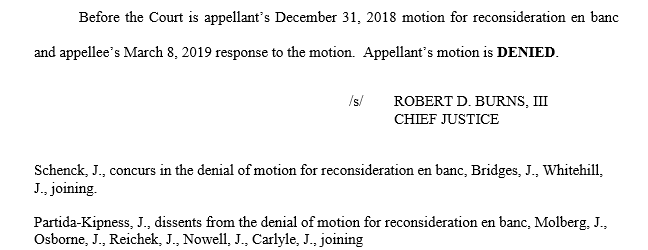
 A valet’s ill-advised joyride in a customer’s limited-edition Mazda Miata led to the case of Parking Co. of Am. Valet, Inc. v. Fellman. Among other holdings, the Fifth Court noted:
A valet’s ill-advised joyride in a customer’s limited-edition Mazda Miata led to the case of Parking Co. of Am. Valet, Inc. v. Fellman. Among other holdings, the Fifth Court noted:
- Publicly-available sales price data. An expert’s use of asking prices from websites like cars.com was acceptable when: “This case does not involve natural gas, real estate, or other market where the sales price of comparable property is readily determinable.”
- Relevance of later sale. “[T]he car was not in the same condition when it was sold as it was before the accident; the evidence showed it was in better condition. Between the accident and the sale, Fellman spent about $1,000 upgrading the
car’s brakes, and he put new tires on the car shortly before he sold it.”
05-17-01277-CV (July 31, 2019) (mem. op.)
 Richardson Business Center proved an easement by estoppel, and appealed the trial court’s decision to not award attorneys’ fees for its successful declaratory-judgment action. However: “The trial court did not file findings of fact or conclusions of law. Without findings of fact establishing the basis for the trial court’s exercise of discretion, we cannot conclude as a matter of law that the trial court abused its discretion in declining to award attorney’s fees.” Hazzani v. Richardson Business Center, No. 05-18-00346-CV (July 21, 2019) (mem. op.)
Richardson Business Center proved an easement by estoppel, and appealed the trial court’s decision to not award attorneys’ fees for its successful declaratory-judgment action. However: “The trial court did not file findings of fact or conclusions of law. Without findings of fact establishing the basis for the trial court’s exercise of discretion, we cannot conclude as a matter of law that the trial court abused its discretion in declining to award attorney’s fees.” Hazzani v. Richardson Business Center, No. 05-18-00346-CV (July 21, 2019) (mem. op.)
 The Mian Devel. Corp. v. State of Texas involved an epic “battle of the experts” arising from the condemnation of some parking for the Sterling Hotel, a large hotel complex on I-35 near downtown Dallas. The hotel’s owners offered experts calculating compensation of $13,600,101 or $19,100,000; the State offered experts calculating compensation at $1,027,927 or $764,970, and also called an expert who said the Sterling was an unviable business. The jury awarded damages of $1,186,350 and the owner appealed. The Fifth Court affirmed in a detailed review of these experts’ testimony, discussing, inter alia: (1) the line between unreliable methodology (admissibility) and material for cross-examination (weight) (pages 10-11); (2) the concept and legal definition of fair market value (page 13); (3) five evidentiary issues about objecting to discussion of material relied upon by an expert (pages 18-19); and (4) throughout, the accepted methodologies and data resources used in this area of law. No. 05-17-01385-CV (July 18, 2019) (mem. op.).
The Mian Devel. Corp. v. State of Texas involved an epic “battle of the experts” arising from the condemnation of some parking for the Sterling Hotel, a large hotel complex on I-35 near downtown Dallas. The hotel’s owners offered experts calculating compensation of $13,600,101 or $19,100,000; the State offered experts calculating compensation at $1,027,927 or $764,970, and also called an expert who said the Sterling was an unviable business. The jury awarded damages of $1,186,350 and the owner appealed. The Fifth Court affirmed in a detailed review of these experts’ testimony, discussing, inter alia: (1) the line between unreliable methodology (admissibility) and material for cross-examination (weight) (pages 10-11); (2) the concept and legal definition of fair market value (page 13); (3) five evidentiary issues about objecting to discussion of material relied upon by an expert (pages 18-19); and (4) throughout, the accepted methodologies and data resources used in this area of law. No. 05-17-01385-CV (July 18, 2019) (mem. op.).
 July 19 is notable as the birthday of Samuel Colt, and as the day the Fifth Court gave two clean examples of when mandamus is, and is not, available:
July 19 is notable as the birthday of Samuel Colt, and as the day the Fifth Court gave two clean examples of when mandamus is, and is not, available:
- YES. The trial court granted a motion to reinstate after the expiration of plenary power. The Fifth Court granted the writ “instanter” in this situation, since the trial court’s lack of jurisdiction was established with certainty. In re Southern Management, No. 05-19-00653-CV (July 19, 2019) (mem. op.)
- NO. The trial court declined to find certain materials were confidential and thus covered by its protective order–a topic as to which the Fifth Court “afford[s] the trial court broad discretion” and requires “facts showing a particular, specific, and demonstrable injury” and “detailed information to support its claim of privilege or confidentiality.” In re Toyota, No. 05-19-00030-CV (July 19, 2019) (mem. op.)
 In an artful scramble to avoid Dyer v Medoc Health Services, 573 S.W.3d 418, 424 (Tex. App.–Dallas 2019, pet. denied), the movant abandoned the argument that the relevant business communications dealt with “a matter of public concern,” and instead focused on whether the communications were in connection with “a good, product, or service in the marketplace” — namely, workplace complaints about the plaintiff. The panel majority was not persuaded, concluding that “[t]he allegations against Damonte clearly are not based on, related to, or in response to conversations Damonte purportedly had with employees about problems they were having with the company,” and that “nothing in Hallmark’s lawsuit suggests are predicated on anything other than Damonte’s alleged involvement in a scheme to misappropriate and use Hallmark’s confidential information.” A concurrence cautioned that “[t]he majority opinion should not be construed to mean the content of the communication at issue must itself be defamatory or actionable” to be actionable. No. 05-18-00874-CV (July 12, 2019) (mem. op.)
In an artful scramble to avoid Dyer v Medoc Health Services, 573 S.W.3d 418, 424 (Tex. App.–Dallas 2019, pet. denied), the movant abandoned the argument that the relevant business communications dealt with “a matter of public concern,” and instead focused on whether the communications were in connection with “a good, product, or service in the marketplace” — namely, workplace complaints about the plaintiff. The panel majority was not persuaded, concluding that “[t]he allegations against Damonte clearly are not based on, related to, or in response to conversations Damonte purportedly had with employees about problems they were having with the company,” and that “nothing in Hallmark’s lawsuit suggests are predicated on anything other than Damonte’s alleged involvement in a scheme to misappropriate and use Hallmark’s confidential information.” A concurrence cautioned that “[t]he majority opinion should not be construed to mean the content of the communication at issue must itself be defamatory or actionable” to be actionable. No. 05-18-00874-CV (July 12, 2019) (mem. op.)
On June 28, the Texas Supreme Court denied the petition for review in Dyer v. Medoc Health Services, 573 S.W.3d 418 (Tex. App.–Dallas 2019), soldifying the foundation for several recent opinions from the Fifth Court that have limited the reach of the TCPA.
 In Clean Energy v. Trillium Transportation Fuels, No. 05-18-01228-CV (July 9, 2019) (mem. op.), the Fifth Court applied the “commercial speech” exemption to communications made by Clean Energy, reasoning: “Clean Energy sent unsolicited emails to Trillium’s customers, indicated Trillium’s prices were too high, and attempted to meet with Trillium’s customers to ‘present our renewable CNG offering and support services’ and discuss ‘what we could do today.’ The fact that the emails do not provide specific details about Clean Energy’s pricing or business proposal does not mean the emails are not about Clean Energy’s goods and services. Because part of Clean Energy’s communications involves its goods and services, [Dickens v. Jason C. Webster, P.C., No. 05-17-00423-CV, 2018 WL 6839568 (Tex. App.–Dallas Dec. 31, 2018, no pet.) (mem. op.)] is distinguishable and does not control the outcome under these facts.” (LPCH represents Clean Energy in this matter.)
In Clean Energy v. Trillium Transportation Fuels, No. 05-18-01228-CV (July 9, 2019) (mem. op.), the Fifth Court applied the “commercial speech” exemption to communications made by Clean Energy, reasoning: “Clean Energy sent unsolicited emails to Trillium’s customers, indicated Trillium’s prices were too high, and attempted to meet with Trillium’s customers to ‘present our renewable CNG offering and support services’ and discuss ‘what we could do today.’ The fact that the emails do not provide specific details about Clean Energy’s pricing or business proposal does not mean the emails are not about Clean Energy’s goods and services. Because part of Clean Energy’s communications involves its goods and services, [Dickens v. Jason C. Webster, P.C., No. 05-17-00423-CV, 2018 WL 6839568 (Tex. App.–Dallas Dec. 31, 2018, no pet.) (mem. op.)] is distinguishable and does not control the outcome under these facts.” (LPCH represents Clean Energy in this matter.)
 The recent case of SIG-TX Assets v. Serrato, over a dissent, declined to require arbitration of nonsignatories’ claims about mishandled funeral services. It would be wrong to read too much into that case, in light of Meritage Homes v. Mudda, which required nonsignatories to arbitrate claims about a home’s construction: “Here, we are presented with facts requiring application of the exception because the Muddas are seeking benefits under the Limited Warranty while simultaneously attempting to avoid its arbitration provision.” No. 05-18-00934-CV (July 3, 2019) (unpublished).
The recent case of SIG-TX Assets v. Serrato, over a dissent, declined to require arbitration of nonsignatories’ claims about mishandled funeral services. It would be wrong to read too much into that case, in light of Meritage Homes v. Mudda, which required nonsignatories to arbitrate claims about a home’s construction: “Here, we are presented with facts requiring application of the exception because the Muddas are seeking benefits under the Limited Warranty while simultaneously attempting to avoid its arbitration provision.” No. 05-18-00934-CV (July 3, 2019) (unpublished).
 The “case-within-a-case” requirement for a legal-malpractice claim led to affirmance of a defense summary judgment: “While [the expert’s] opinion provides examples of steps independent counsel could have taken on [Plaintiff’s] behalf, we conclude his opinion that the outcome would have been different is speculative and conclusory. . . . [His] testimony may raise an inference that a different attorney might have more aggressively pursued a temporary injunction to prevent [the bank] from foreclosing, but whether the trial court would have granted a request for an injunction is entirely speculative; as is [his] opinion that had the temporary injunction against [Plaintiff] been denied, [Plaintiff] would have re-financed . . . or sold . . . to a different buyer at a higher purchase price.” No. 05-18-00467-CV (July 3, 2019) (mem. op.) (emphasis added).
The “case-within-a-case” requirement for a legal-malpractice claim led to affirmance of a defense summary judgment: “While [the expert’s] opinion provides examples of steps independent counsel could have taken on [Plaintiff’s] behalf, we conclude his opinion that the outcome would have been different is speculative and conclusory. . . . [His] testimony may raise an inference that a different attorney might have more aggressively pursued a temporary injunction to prevent [the bank] from foreclosing, but whether the trial court would have granted a request for an injunction is entirely speculative; as is [his] opinion that had the temporary injunction against [Plaintiff] been denied, [Plaintiff] would have re-financed . . . or sold . . . to a different buyer at a higher purchase price.” No. 05-18-00467-CV (July 3, 2019) (mem. op.) (emphasis added).
 The complex structure of Texas’s intermediate appellate courts was the subject of Justice Schenck’s concurrence from the denial of en banc review in Brooks-PHS Heirs, LLC v. Bowerman, a docket-equalization transfer from San Antonio. The opinion observes: “When one intermediate court of appeals sits in the place of another, it applies the precedent of the transferor court. Tex. R. App. P. 41.3. Of course, we (or more directly I as the author) have endeavored to do that here, applying San Antonio precedent to arrive at the result we think that appellate court would reach. The question of whether that application is correct at this point is essentially out of reach of the en banc review mechanism as it is described in rule 41.2, as the panel has already applied what it sees as San Antonio law; our remaining colleagues that constitute the en banc court in Dallas could likewise only predict how San Antonio would rule; and the San Antonio Court of Appeals has no seat at the table. See id. 41.2 (decision by en banc court).” No. 05-18-00356-CV (July 5, 2019) (emphasis added).
The complex structure of Texas’s intermediate appellate courts was the subject of Justice Schenck’s concurrence from the denial of en banc review in Brooks-PHS Heirs, LLC v. Bowerman, a docket-equalization transfer from San Antonio. The opinion observes: “When one intermediate court of appeals sits in the place of another, it applies the precedent of the transferor court. Tex. R. App. P. 41.3. Of course, we (or more directly I as the author) have endeavored to do that here, applying San Antonio precedent to arrive at the result we think that appellate court would reach. The question of whether that application is correct at this point is essentially out of reach of the en banc review mechanism as it is described in rule 41.2, as the panel has already applied what it sees as San Antonio law; our remaining colleagues that constitute the en banc court in Dallas could likewise only predict how San Antonio would rule; and the San Antonio Court of Appeals has no seat at the table. See id. 41.2 (decision by en banc court).” No. 05-18-00356-CV (July 5, 2019) (emphasis added).
 The last stand of Dallas’s Confederate War Memorial (right) has been extended until mid-July; the Fifth Court stayed matters until it can receive and consider full briefing on the request for a writ of injunction during an appeal about the Memorial and the related statue of Robert E. Lee. In re: Return to Lee Park, No. 05-19-00774-CV (July 1, 2019) (order). Robert Wilonsky has a good summary of the current status of the litigation in the Dallas Morning News.
The last stand of Dallas’s Confederate War Memorial (right) has been extended until mid-July; the Fifth Court stayed matters until it can receive and consider full briefing on the request for a writ of injunction during an appeal about the Memorial and the related statue of Robert E. Lee. In re: Return to Lee Park, No. 05-19-00774-CV (July 1, 2019) (order). Robert Wilonsky has a good summary of the current status of the litigation in the Dallas Morning News.
 The Texas court system has more supreme courts than the United States (2 for Texas, 1 for the USA), and more intermediate courts of appeal as well (14 for Texas, 13 for the USA). The true complexity of the Texas courts, however, lies in the sometimes-Byzantine interplay between district courts (the standard, county-wide trial court) and county courts (depending on the county, potentially “constitutional county courts,” “statutory county courts,” or “county courts at law”). An excellent example appears in Wood v. Lassiter, a dozen-page opinion about county-court jurisdiction over a dispute involving the boundary for Kaufman County road maintenance obligations. No. 05-18-01059-CV (June 28, 2019) (mem. op.)
The Texas court system has more supreme courts than the United States (2 for Texas, 1 for the USA), and more intermediate courts of appeal as well (14 for Texas, 13 for the USA). The true complexity of the Texas courts, however, lies in the sometimes-Byzantine interplay between district courts (the standard, county-wide trial court) and county courts (depending on the county, potentially “constitutional county courts,” “statutory county courts,” or “county courts at law”). An excellent example appears in Wood v. Lassiter, a dozen-page opinion about county-court jurisdiction over a dispute involving the boundary for Kaufman County road maintenance obligations. No. 05-18-01059-CV (June 28, 2019) (mem. op.)
 Perlman v. EKLS Firestopping & Construction is the latest opinion from the Fifth Court that affirms the denial of a TCPA motion to dismiss, when the communications and associations at issue were fundamentally private and business-related. The appellee sought an award of fees for a frivolous motion, but the Court reminded: “[Appellee], however, did not file a notice of appeal, which is required to alter a trial court’s judgment or other appealable order. Under [Tex. R. App. P.] 25.1(c), we may not grant a party who does not file a notice of appeal ‘more favorable relief than did the trial court except for just cause . . . .” No. 05-18-00971-CV (June 28, 2019).
Perlman v. EKLS Firestopping & Construction is the latest opinion from the Fifth Court that affirms the denial of a TCPA motion to dismiss, when the communications and associations at issue were fundamentally private and business-related. The appellee sought an award of fees for a frivolous motion, but the Court reminded: “[Appellee], however, did not file a notice of appeal, which is required to alter a trial court’s judgment or other appealable order. Under [Tex. R. App. P.] 25.1(c), we may not grant a party who does not file a notice of appeal ‘more favorable relief than did the trial court except for just cause . . . .” No. 05-18-00971-CV (June 28, 2019).
The How ards argued that their note was not a negotiable instrument (and thus, not subject to a 6-year statute of limitations), citing provisions in the note about late fees, notice obligations, and a usury savings clause. While under the UCC, an instrument can become non-negotiatble if it includes “any other undertaking or instruction by the person promising or ordering payment to do any act in addition to the payment of money,” these provisions were permissible as “an undertaking or power to give, maintain, or protect collateral to secure payment.” PNC v. Howard, No. 05-17-01484-CV (June 24, 2019) (applying TBOC § 3.104(a)).
ards argued that their note was not a negotiable instrument (and thus, not subject to a 6-year statute of limitations), citing provisions in the note about late fees, notice obligations, and a usury savings clause. While under the UCC, an instrument can become non-negotiatble if it includes “any other undertaking or instruction by the person promising or ordering payment to do any act in addition to the payment of money,” these provisions were permissible as “an undertaking or power to give, maintain, or protect collateral to secure payment.” PNC v. Howard, No. 05-17-01484-CV (June 24, 2019) (applying TBOC § 3.104(a)).
 Conditionally granting mandamus relief from this order by the Fifth Court (a “lift-stay” order in a TCPA appeal), in In re Geomet Recycling, the Texas Supreme Court held:
Conditionally granting mandamus relief from this order by the Fifth Court (a “lift-stay” order in a TCPA appeal), in In re Geomet Recycling, the Texas Supreme Court held:
“[T]o the extent EMR faced irreparable harm, it had an avenue available to it by which a court could provide a remedy without violating the statutory stay. It did not pursue that remedy but instead asked the court of appeals to lift the stay in violation of [CPRC] section 51.014(b). EMR’s choice of an unsuited procedural mechanism does not create a constitutional problem we must address. And to the extent EMR did not face irreparable harm but simply wanted a hearing on the trial-court motions that had been pending when Geomet’s appeal triggered the stay, that is exactly what [CPRC] section 51.014(b) prohibits.”
It also observed: “Whether . . . an order under [TRAP] 29.3 referring a motion to the trial court for findings and recommendations would violate the statutory stay ‘of all trial court proceedings’ is a question the parties have not briefed and that we need not decide.” No. 18-0443 (June 14, 2019).
In Lei v. Natural Polymer Int’l Corp., the Fifth Court affirmed the denial of a TCPA motion (and then some) in a trade-secrets dispute about the making of “natural pet treats,” holding:
- Association. Under Dyer v. Medoc Health Services, while another appeal district might have a different view, under Dallas precedent the plaintiff failed to invoke the TCPA’s protection of assocation rights;
- Speech. “We cannot conclude that these alleged ‘communications’ are tangentially related to a matter of public concern simply because the proprietary and confidential information at issue belonged to a company in the business of selling pet treats that promote health ‘or because the alleged tortfeasors hoped to profit from their conduct.’”’
- Petition. [T]o construe the TCPA such that appellants exercised a ‘right to petition’ based on their deposition testimony . . . ‘is an absurd result that would not further the purpose of the TCPA to curb strategic lawsuits against public participation.’” (applying Miller Weisbrod, LLP v. Llamas-Soforo, 511 S.W.3d 181, 192–93 (Tex. App.—El Paso 2014, no pet.); and
- Award of fees. It was not an abuse of discretion to find the TCPA motion frivolous, when at an earlier temporary-injunction hearing, “[t]he trial court had already heard evidence supporting NPIC’s pleaded causes of action at the time appellants filed their motion to dismiss.”
No. 05-18-01041-CV (June 21, 2019).
 Here is my PowerPoint from the recent appellate course sponsored by University of Texas CLE. I also discussed this month’s opinion in In re: City of Houston, granting mandamus relief in a privilege dispute.
Here is my PowerPoint from the recent appellate course sponsored by University of Texas CLE. I also discussed this month’s opinion in In re: City of Houston, granting mandamus relief in a privilege dispute.
 Valor Energy sued Price Drilling in Dallas County; Price sought transfer to Starr County, where the relevant oil well was located, and the Fifth Court denied Price’s mandamus petition, which was based on the mandatory-venue provision about the location of real estate (CPRC § 15.011). The Court reasoned: “The record shows that the contract was executed in Dallas County, the alleged negligence is based on Price’s performance of its drilling obligations, and the fraud claims relate in part to some actions directed at Valor in Dallas County. Valor does not seek damages for oil that has been wrongfully removed from its property, and does not seek any declarations as to Valor’s or Price’s rights to any portions of the property itself. Rather, Valor seeks breach of contract, fraud, and negligence damages for Price’s failure to fulfill its duties under the contract to re-drill the Well and for the misrepresentations made by Price to Valor regarding Price’s work on the alleged compliance with the terms of the contract.” In re Price Drilling Rig No. 5 Co., No. 05-19-00344-CV (June 17, 2019) (mem. op.)
Valor Energy sued Price Drilling in Dallas County; Price sought transfer to Starr County, where the relevant oil well was located, and the Fifth Court denied Price’s mandamus petition, which was based on the mandatory-venue provision about the location of real estate (CPRC § 15.011). The Court reasoned: “The record shows that the contract was executed in Dallas County, the alleged negligence is based on Price’s performance of its drilling obligations, and the fraud claims relate in part to some actions directed at Valor in Dallas County. Valor does not seek damages for oil that has been wrongfully removed from its property, and does not seek any declarations as to Valor’s or Price’s rights to any portions of the property itself. Rather, Valor seeks breach of contract, fraud, and negligence damages for Price’s failure to fulfill its duties under the contract to re-drill the Well and for the misrepresentations made by Price to Valor regarding Price’s work on the alleged compliance with the terms of the contract.” In re Price Drilling Rig No. 5 Co., No. 05-19-00344-CV (June 17, 2019) (mem. op.)
 “[Appellant]’s motion asserted that [he] was ‘unsophisticated in legal matters’ and did not understand he was required to file an answer and thought he would receive a hearing notice before any judgment was rendered. Not understanding a citation and then doing nothing after being served does not constitute a mistake of law that is sufficient to meet the first Craddock element.” Chapple v. Hall, No. 05-18-01209-CV (June 14, 2019) (mem. op.)
“[Appellant]’s motion asserted that [he] was ‘unsophisticated in legal matters’ and did not understand he was required to file an answer and thought he would receive a hearing notice before any judgment was rendered. Not understanding a citation and then doing nothing after being served does not constitute a mistake of law that is sufficient to meet the first Craddock element.” Chapple v. Hall, No. 05-18-01209-CV (June 14, 2019) (mem. op.)
 Not offered in evidence? Might not be a problem, at least on the following record::
Not offered in evidence? Might not be a problem, at least on the following record::
On appeal, the Pelley parties argue that the evidence is legally insufficient to support the award because there was no sworn expert witness testimony, neither of the “two exhibits which the attorney for the Wynne Parties handed to the court reporter to be marked . . . were ever offered into evidence by the [Wynne parties], nor were they ever admitted into evidence by a ruling of the Trial Court.” They also contend that even if the statements by the Wynne parties’ counsel had been properly presented to the trial court, his assertions “would have been objected to as being unreliable, and should have been excluded as evidence.” [1] The Pelley parties, however, did not object to, but rather discussed, the Westfall affidavit in their arguments in the trial court. [2] Nor did the Pelley parties object to the Wynne parties’ references to Westfall’s billing records on the basis they were not in evidence. The reporter’s record clearly shows that the parties and the trial court treated the Westfall affidavit and attached billing records as if they had been admitted into evidence. We conclude that the Westfall affidavit and attached billing records were, “for all practical purposes, admitted.”
Pelley v. Wynne, No. 05-18-00550-CV (June 13, 2019) (emphasis and colorful highlighting added).
 A dispute about the operation of the mandate rule, in a long-running dispute about the winding up of a law partnership, unfolded as follows:
A dispute about the operation of the mandate rule, in a long-running dispute about the winding up of a law partnership, unfolded as follows:
- Trial court, first time. The trial court’s first judgment, in a dispute about the winding-up of a law partnership, “[a]mong other things, . . . ordered Pelley and Scott Pelley P.C. to pay $55,672.80 to Wynne and Smith as reimbursement for overhead operation expenses incurred as part of the law firm’s post-dissolution expenses during the years ‘2012 to present’ and ordered the Pelley parties to pay $40,000 to the Wynne parties for attorney’s fees incurred ‘in connection with the Gibbs Estate and Shankles Estate cases.'” (emphasis added, here and below)
- Court of appeals, first time. On appeal from that judgment, the Fifth Court held, in part: “[T]he trial court erred when it failed to include contingent attorney’s fees on appeal in the final judgment.
The trial court’s final judgment is reversed as to Wynne’s and Smith’s request for contingent appellate attorneys’ fees and remanded for further proceedings consistent with this opinion. The remainder of the trial court’s judgment is affirmed.” - Trial court, second time. On remand, the trial court awarded additional, post-judgment overhead expenses, to which the losing party objected: “[T]he final judgment ordered the paying of overhead through the date of the trial. There is no provision in the final judgment or anywhere else where this Court ordered any sort of continuing obligation after the date of judgment. Frankly, if it did, it wouldn’t be a final judgment. There simply is no provision in the final judgment for the amount that counsel is proposing for additional overhead.”
- Court of appeals, second time. “We agree . . . .on remand the trial court had no authority to address the matter of overhead expenses, which had been finally adjudicated by our first opinion, judgment, and mandate. We remanded this case with specific instructions [about attorneys’ fees].”
Pelley v. Wynne, No. 05-18-00550-CV (June 13, 2019).
 Here is a copy of my PowerPoint from today. Thanks to all who came out, and to the DBA Appellate Section for the invitation!
Here is a copy of my PowerPoint from today. Thanks to all who came out, and to the DBA Appellate Section for the invitation!
 On Thursday June 13 at noon, I will speak to the DBA Appellate Law Section (and anyone else within earshot) to give an update on business law cases from the Dallas Court of Appeals in 2019. This should be a fun opportunity to look at the impact of the Slate of Eight since taking office at the start of the year. I will post the PowerPoint after the event (since it will not be done until then!)
On Thursday June 13 at noon, I will speak to the DBA Appellate Law Section (and anyone else within earshot) to give an update on business law cases from the Dallas Court of Appeals in 2019. This should be a fun opportunity to look at the impact of the Slate of Eight since taking office at the start of the year. I will post the PowerPoint after the event (since it will not be done until then!)



